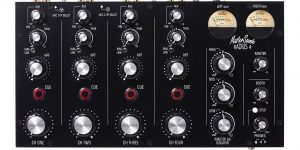
DJ Tech News – May 2020!
This has been a relatively slow time lately for tech news, for pretty obvious reasons, but there’s some pretty cool new bits of kit and tech to report on!
Up first – Numark have launched a pair of budget controllers, the two-channel ProFX and the four-channel Platinum FX. Both feature 6-inch jog wheels, 2 FX paddles, and performance pads. The Platinum FX allows you to switch control with the 2 jog wheels so that they can control all 4 channels, as well as displays on the jog wheels. Other than these differences, they are basically the same. They are bundled with Serato Lite, and look likely to cement Numark’s reputation for providing fantastic budget options, the pricing of these being $199 and $249 respectively.
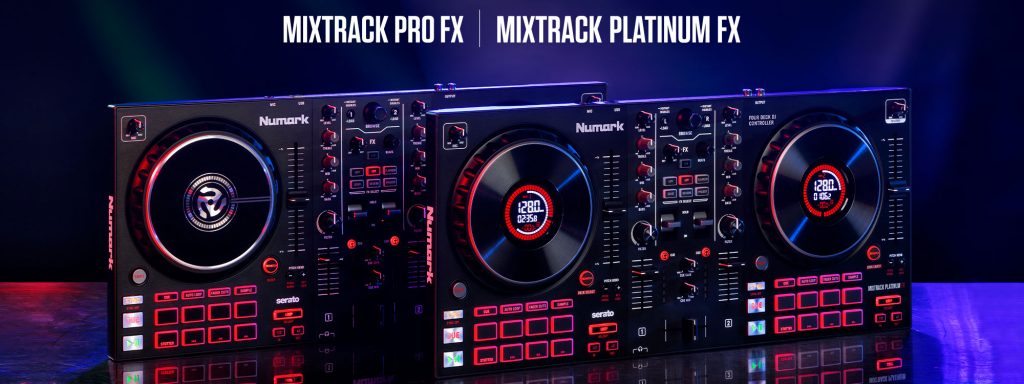
Moving to a very different area of the tech scene, Mastersounds have launched their 3rd generation of rotary Radius mixers, with the Radius 2 ( £799) and Radius 4 (£1089). While still far from cheap, they are considerably closer to being affordable compared to their previous mixers, and offer DJs on a tighter budget the chance to enjoy the amazing sound of their range. The mixers feature a High Pass Filter per channel, a master isolator three-band EQ and high-quality RIAA pres.
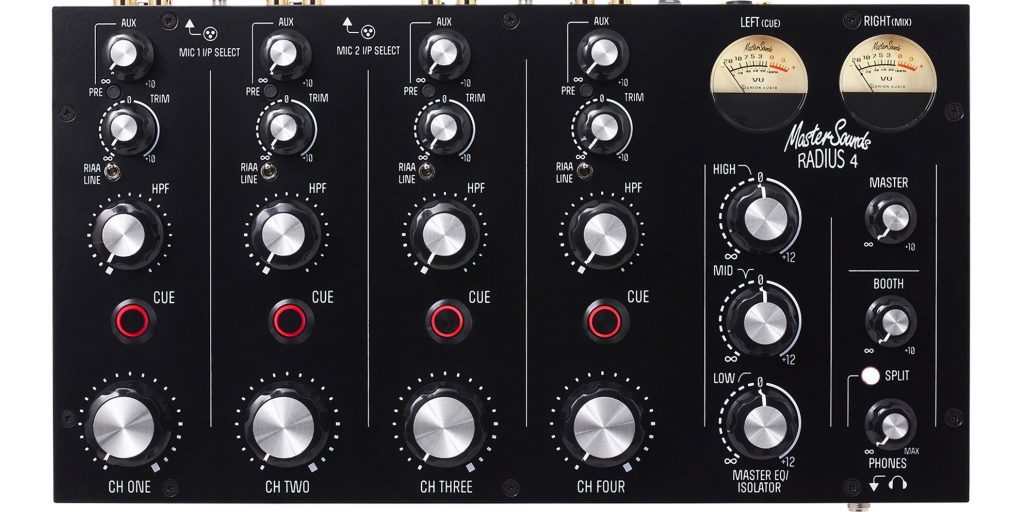
And finally, a fascinating project – Citizen DJ, from the Library of Congress in the USA. There are hundreds of thousands of free-to-use audio samples, arranged into sections. You can go through to pick sounds, scrubbing through a bewilderingly huge wall of samples, and then they have a web browser-based step sequencer, and an incredible array of presets for different style drum patterns and sounds. You can even edit the sample length – I had a lot of fun messing around with it! This is only the Beta, so keep checking back, its a really fun way to make beats using unusual sounds!
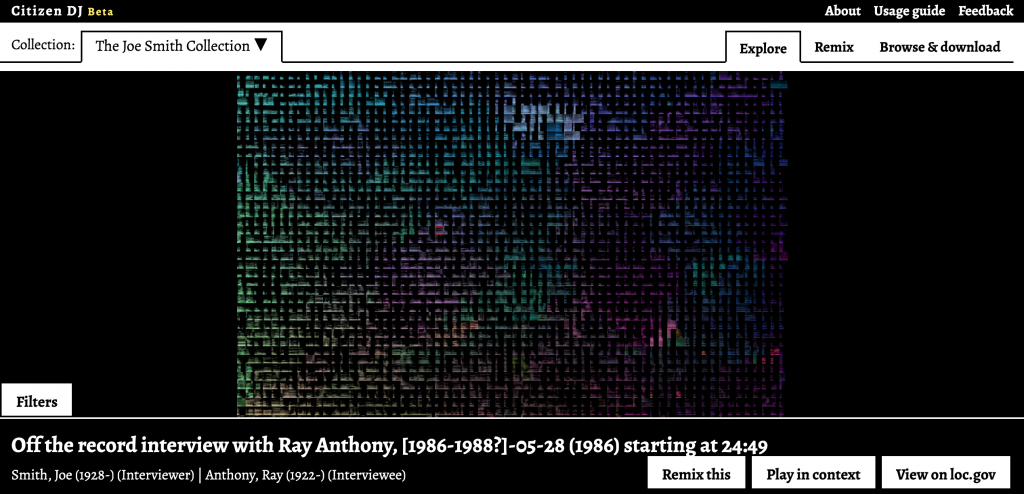
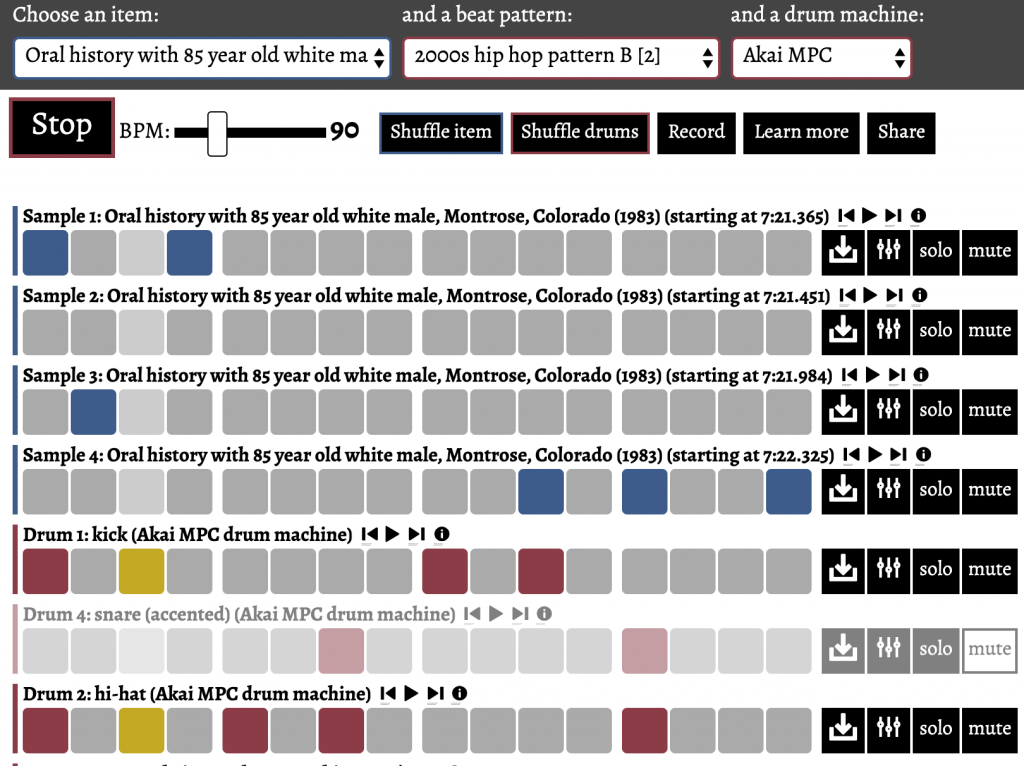
That’s it for now, head over to the Heavy Hits pool for the latest hot tracks, and follow me on Instagram!

Logic Pro X 10.5 – huge update for Logic!
Logic has long been a serious studio favourite, but in recent years (since Apple took ownership) has seemed a little neglected, and seemed to slip behind rivals like Ableton, with few exciting new ideas, and some relics of an old world such as the horribly dated EXS24 sampler holding it back.
But huge news this week! Logic Pro X 10.5 is out, a free upgrade for existing users, and $199.99 for US customers, a very competitive price.
And it is a serious update, completely revamping many aspects of the program, and introducing many that could be generously described as “heavily influenced” by the competition – a less charitable description would be “shamelessly copies its rivals”… But what matters is, is it any good?
Here’s a quick run through some of the new features
The biggest change is the new “Live Loops” feature. Essentially bringing much of the functionality of Ableton’s session view to Logic, this means you are no longer stuck in Logic’s previously very linear form of composition, and can jam with multiple loops and ideas to come up with ideas, before moving on to your arrangement. Live Loops works with Logic Remote, an iOS app that turns your iPhone or iPad into a controller, and seems to work brilliantly, a huge improvement on simply mouse and keypad.
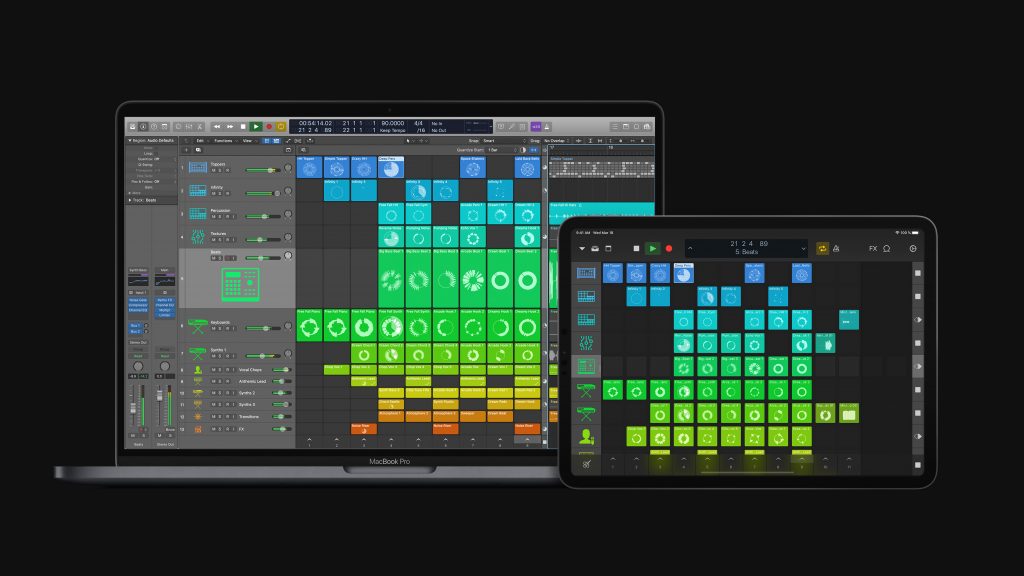
As I mentioned above, the EXS24 is out, and in its place, Sampler and Quick Sampler.
“Producers can use Sampler to create and edit sophisticated multisampled instruments, using elegant drag-and-drop workflows that automate complex production tasks. Quick Sampler is a fast and simple way to turn any individual sound into a playable instrument. Musicians can pick a sound from within Logic, the Finder, Voice Memos, or even record directly into Quick Sampler. With just a few clicks, an imported sample can be trimmed, looped, and played across a keyboard controller, with access to creative sound-shaping controls.”
Early reports suggest both are brilliant, and that Quick Sampler is so good that you might end up just using that, although Sampler looks to have some incredible possibilities for the creative minds out there! Sampler has full backwards compatibility, so if you have EXS24-ready sample sets, you are good to go here too.
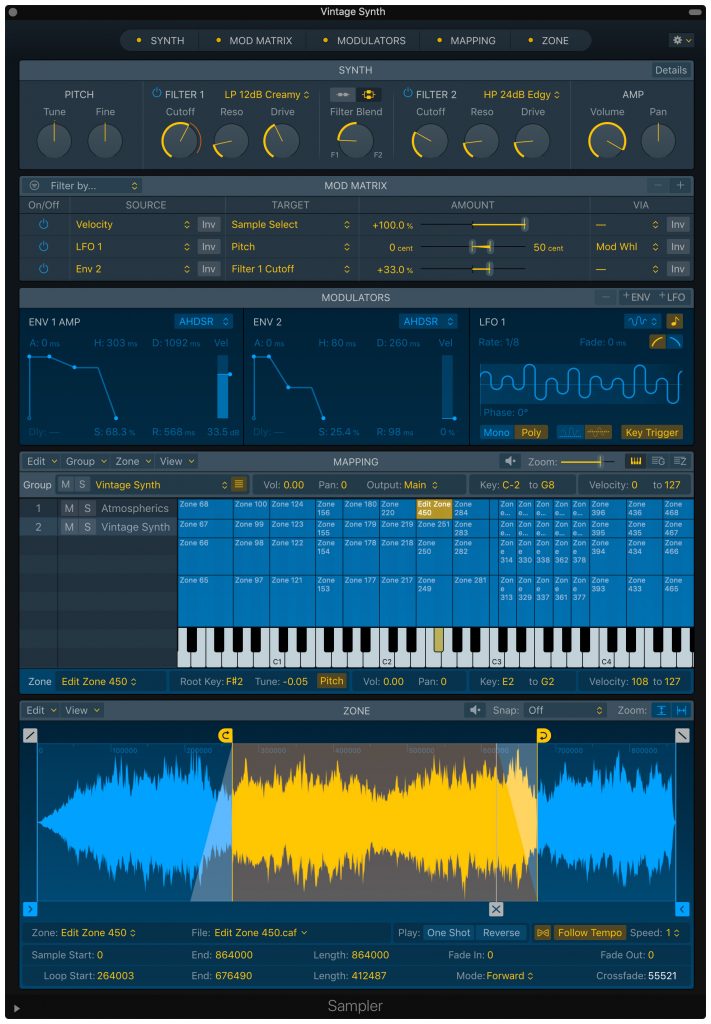
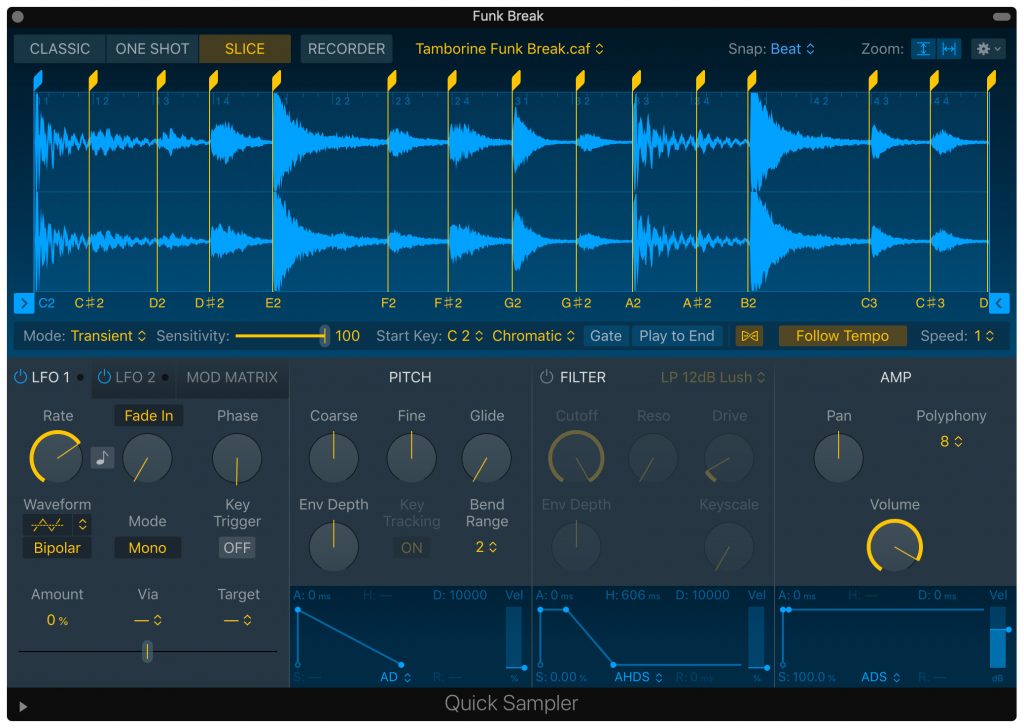
Even more exciting to my eyes, is the new Step Sequencer –
“Step Sequencer is a new editor in Logic designed to make it fun and easy to program drum beats, bass lines, and melodic parts using an interface inspired by classic drum machine workflows. Step Sequencer combines a pattern-based style of music creation with powerful editing options for creating original parts — providing detailed control over note velocity, repeat, gate, skip, playback direction, and randomization.”
Apparently a triumph in how it works, this seems to be a massive bonus for anyone making beat-driven music.
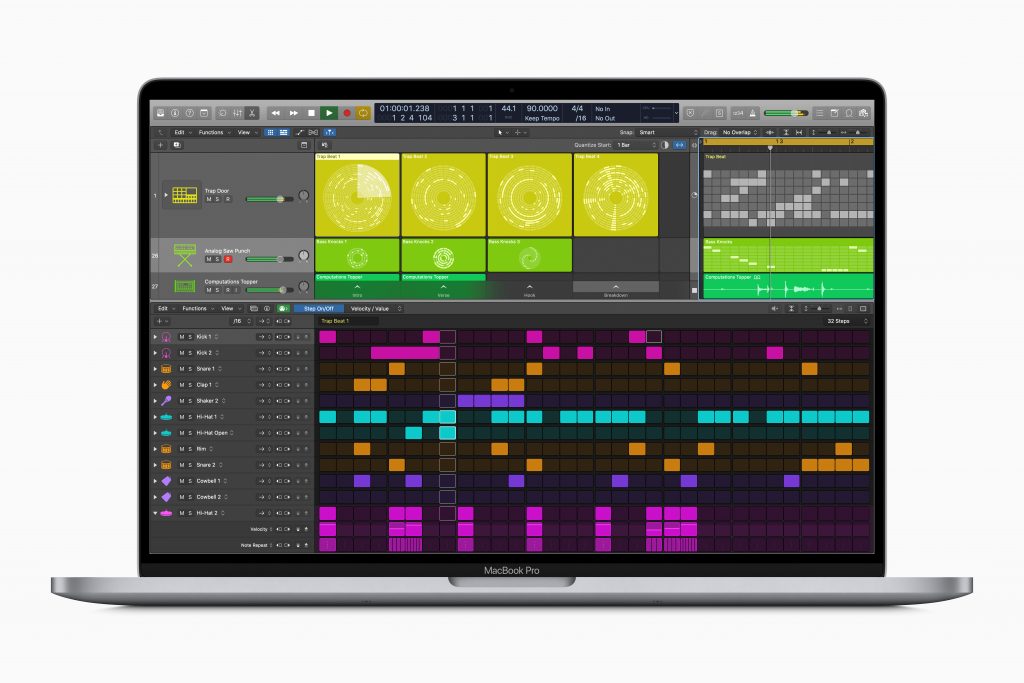
Read more about it here, and for a full in-depth review check out here. One thing is for sure, I’m gonna re-download Logic and give it a go, it looks like Logic is back!
To hear the latest, hottest tracks, remixes and edits, head over to the Heavy Hits pool, and follow me on Instagram
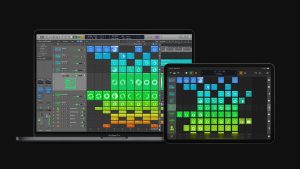
Bookworms in the Booth
With the enforced time out of venues, this time is a great opportunity for DJs to learn more about the culture and history we are a part of.
I already posted about the multitude of online music documentaries about all aspects of music history. And there are a growing number of music-led podcasts, including some with a specific focus on DJing. The internet age means that lots of options are available, even through the phones in our pockets.
But then there is one of the oldest technologies in the world – ink on paper. There are a lot of brilliant books about music and DJing that DJs can learn an enormous amount from. Here’s a few suggestions to get you started!
The Big Payback (Dan Charnas)
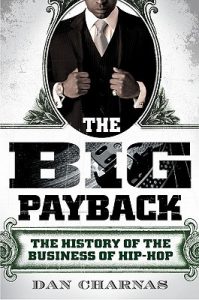
Probably the definitive history to date of the industry behind hip-hop, this book takes us from the early few dollars changing hands in 1970s New York, through to the huge multi-million dollar deals in the modern industry. With insights from real movers-and-shakers from the top of the game, this book lays bare the winners and losers in hip-hop’s journey to being arguably the dominant force in contemporary music.
Last Night A DJ Saved My Life (Bill Brewster, Frank Broughton)
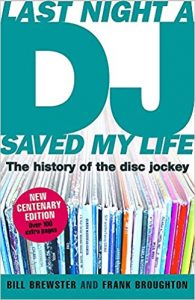
Bill Brewster and Frank Broughton have written several books on the topic of DJing, but probably the best known is this one. Starting at the very beginning, with jukebox jockeys all the way back in 1906 (!!!), all the way up to the era of the superstar DJ, this is a pretty comprehensive history of how DJing became such a huge cultural phenomenon.
The Underground Is Massive: How Electronic Dance Music Conquered America (Michaelangelo Matos)
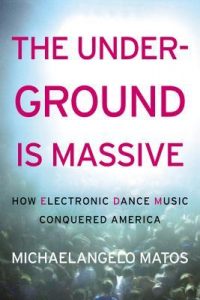
Many of these books delve into the history and roots of modern music – this one is much more current, taking as its subject matter the explosion in popularity of Electronic Dance Music (or EDM as it is more commonly known) in the USA, to now be the biggest draw in the concert and festival scene. Matos explores how the scene blossomed alongside the internet, and doesn’t always come across as being especially fond of what sprang from the initially very underground American dance music world!
The Haçienda: How Not To Run A Club (Peter Hook)
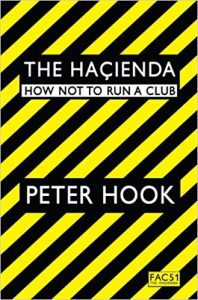
Not specifically about DJing, but very much about DJ culture in many ways, this book is the tale of one of the UK’s most famous clubs, The Haçienda in Manchester. Built and paid for by New Order’s label Factory Records (and in fact, mostly funded by millions that should have gone to New Order…), this is a tale of excess, creativity gone mad, the birth of modern dance culture, drugs, gangs, and much more. Told by New Order bass player Peter Hook, its not necessarily 100% reliable in some of the tales (never let the truth get in the way of a good story, after all!), it is nonetheless a fascinating window into a seminal period of time, the 2nd summer of love, when Acid House took over clubland. Some of the stories are laugh-out-loud hilarious – one I love is how they were taking so much money one new year’s eve that they had to hide bundles of cash behind a partition wall. Somehow sparks from the midnight indoor fireworks got in there, and almost the entire night’s takings ended up a pile of worthless ash!
How Music Works (David Byrne)
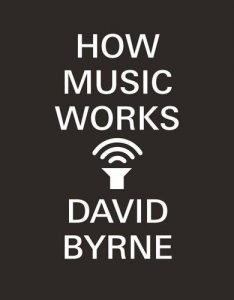
David Byrne is a legendary figure in music – the creative genius behind Talking Heads, and has won Grammy, Oscar and Golden Globe awards, and been inducted into the Rock & Roll Hall Of Fame. Long famous for his brilliant, quirky take on pop, this book is his attempt to understand and explain, err, how music works. The importance of location, lyrics, the impact of technology, the evolution of the music industry over the years. A fascinating perspective from a brilliant man.
Le Freak (Nile Rodgers)
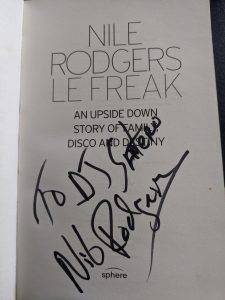
Few active musicians are as respected as disco legend Nile Rodgers. As part of Chic, he helped define the sound of disco. As a producer, he worked with everyone from David Bowie, INXS, Madonna, Duran Duran and many more. He wrote songs for Sister Sledge and Diana Ross. And in recent years he worked alongside Daft Punk and Avicii. This is a genuine musical icon! His memoir is a brilliant account of his life and career, with brilliant stories and insights throughout, and is genuinely inspirational for any aspiring performer or songwriter! I’m lucky enough to have a signed copy 🙂
Bass, Mid, Tops: An Oral History of Sound System Culture (Joe Muggs, Brian David Stevens)
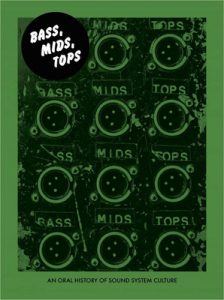
Told in the form of multiple interviews with key players from sound system culture (hence “oral history”), this book gives the reader a solid, if not quite comprehensive, grounding in that. Featuring the likes of Dubmaster Dennis Bovell, Skream, Youth, Norman Jay MBE, Adrian Sherwood and Mala, it explores how the emergence of sound systems in the UK had a profound influence on the direction of modern popular music.
Check The Technique: Liner Notes For Hip-Hop Junkies (Brian Coleman)
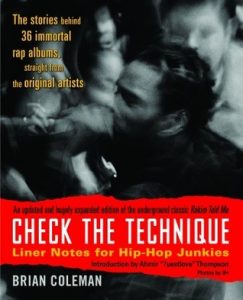
This book is one for the hip-hop obsessives! 36 seminal albums explored in real depth – Public Enemy, De La Soul, A Tribe Called Quest, The Fugees… they’re all here! The format is simple – one album, one chapter, track by track, the original artists offering their inspirations, aims, environment and more, all to help the reader gain a greater understanding of some of the best music ever rapped on!

Rob Pursey – Hip Hop Karaoke/Southern Hospitality
Can you tell us a bit about your background, and how you got started in music and DJing, and putting on your own events?
I really got started in events just by virtue of having more records than most people, being a total music obsessive and working as a music journalist for Hip Hop Connection and a few other magazines. I then got a few DJ gigs with a few friends who were doing cool hip hop stuff like DJ Yoda, Dan Greenpeace etc, and then I was in the game! My love for Southern rap in particular led to me putting on my first events with Rich Firth (DJ Superix) and Tom Hickey in the old days of Shoreditch where we did an event called ‘Crunk!’ (GREAT party) and then shortly after began my brand Southern Hospitality with Superix and Davey Boy Smith. Then starting Hip Hop Karaoke was really what made me become a promoter almost overnight as it was super successful and having a weekly event (thats still running now) I could then take the leap of faith, leave my job, and do this thing properly and do more club events, run new music showcases with Davey Boy Smith at SXSW, take Hip Hop Karaoke to festivals and larger venues.
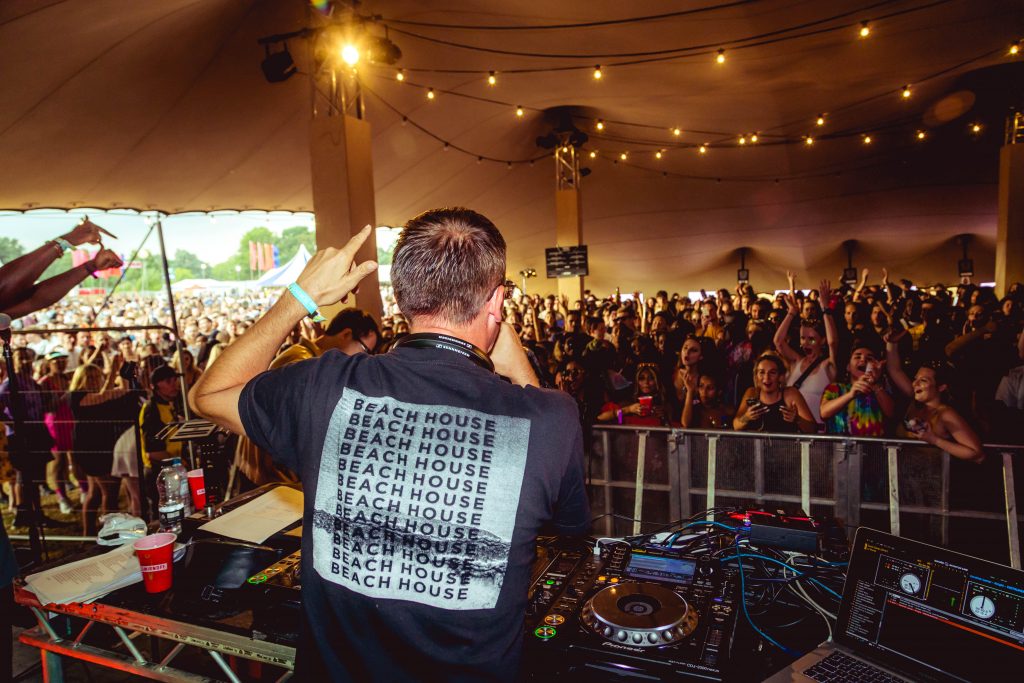
Which way round was it – DJing that led to putting on parties, or putting on parties led to getting on the decks? How does your experience of doing both change the way you do each of the roles?
I was definitely a DJ/music person first, and an accidental promoter! Having the experience of being a promoter 100% improved my DJing as you have much more invested in the event, and you think about everyone’s fulfilment in a way that you don’t so much when you may just be turning up and DJing for an hour. In fact for years we didn’t had any guest DJs as we had a specific vibe at the events whether it was a Southern Hospitality club event or Hip Hop Karaoke, and the crowd came for that particular inclusive, happy vibe – so we knew we had to control that. When I’m DJing my own events I always have one eye on everything and the mood, taking them on the cliched ‘journey’ lol.
How did you get into radio DJing? How do you find that vs club DJing?
I’ve always dabbled with radio and often used to be a guest on Dan (Greenpeace) and Zane Lowe‘s rap show on XFM back in the day – but in recent years being able to work with people like Soho Radio is a true blessing as they fully support great music and the autonomy to do what you want, so I absolutely love presenting right now. Over the years club DJing has been the most amazing experience at times – especially in the days of early Players Ball – when we were pretty much the only DJs in London playing new regional rap music before everything got lumped in as ‘trap’ and watching that excitement in the club as we broke the new records was priceless. In recent years I’ve enjoyed festival stages more and any opportunity to use the mic and interact with crowd is now my favourite kind of DJing – so radio with the combination of more talk and the music I really want to play is awesome.
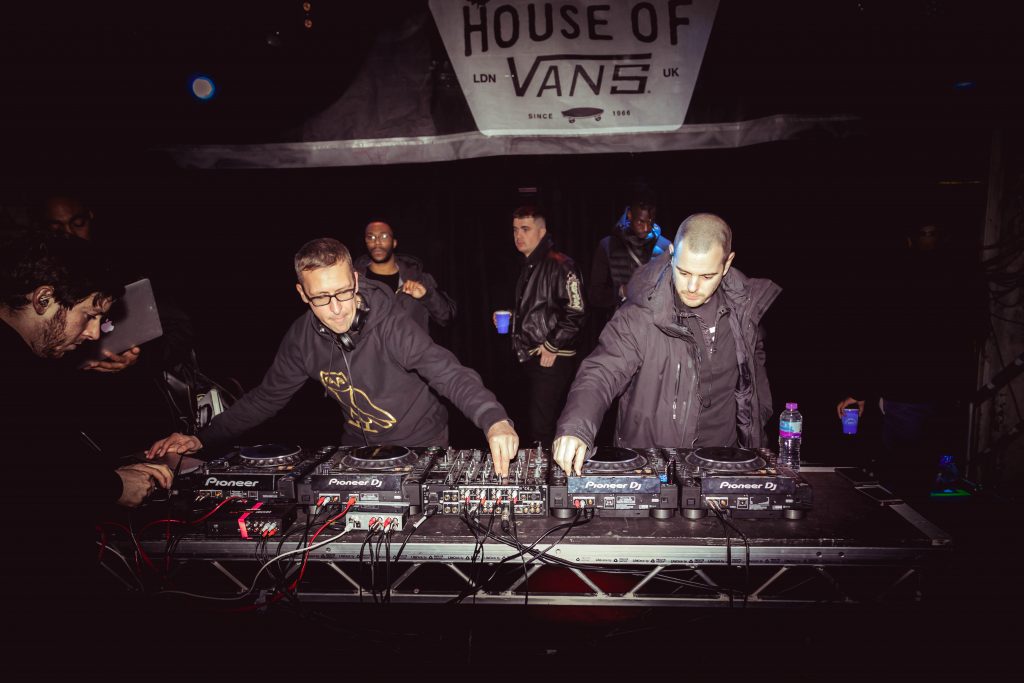
You spent some time as a writer over the years, and these days are very active on hip-hop Twitter – do you think its important for DJs to get involved in those sorts of conversations, or at least read up on their scene, as well as hone their DJ skills?
You know what…I think you will always be able to tell a DJ who has lived the music in real life and that counts for the most for me. It’s good banter to have conversations about the music and the culture but as long as someone’s experiencing the music as it should be experienced then I don’t think they necessarily have to be part of the conversation. You gotta have a pretty thick skin to put your opinions out on Twitter these days lets be honest! I just ask that people respect the music – and don’t just be a voyeur or someone who only uses it to get cheap laughs or quick money etc. I love people who have passion and enthusiasm most of all and thats who I try and follow and engage with.
How did Hip Hop Karaoke come about? And can you tell us a bit about your various nights, and how you differentiate them to avoid them clashing with each other?
Hip Hop Karaoke was one of those things I just thought of and unlike a million other ideas I’ve had I just actually did it and here I am over 10 years later! As well as HHK which I host weekly at Queen Of Hoxton and also Boxpark twice a month, as well as events at the Tate Modern etc. I also run an events called Players Ball, Remedy and Rated R. Each one is really a different facet of music i love to hear in clubs. Players Ball is largely a pure rap music playlist with the emphasis on energy and bounce and the rawest records there are, whereas Rated R is an event I host at The Book Club and indulges my own and all our crowds love for R&B where we’re more likely to be two-stepping than turning up all night! Remedy is a newer event with residents like Rae Dee and SmallsTheDJ, alongside myself, and is an all out house party in a club – we go all over the place with that one with the emphasis on fun, sing-alongs and just good vibes.
You have a depth of music knowledge that few do – what are your main methods of digging for new/old stuff?
Thank you. To be honest I just pay attention and when you really love something the knowledge seems to stick. So following good people on Twitter, using the streaming services, visiting record shops, going down YouTube rabbit holes every night, talking to people, digging through discographies on Discogs and also just experiencing it every day like I mentioned earlier. Really there’s no substitute for just being involved in music – like in the same way people who are fashionable (I am not one of them) can pick a dope outfit out where the average person can’t because they just live for it.
How do you cope with the stresses and pressures of a quite unpredictable industry – both in general during normal times, and also at exceptional moments like right now?
Exercise definitely helps and I play tennis as much as I can, and the competitive nature of it switches me off from what I may be stressed about with work. I definitely experience bouts of anxiety due to the nature of the business, but I have some great people to talk to who always give me good advice or may offer a different perspective. Right now It’s definitely an unsure time, but I’m also making the most of spending amazing time with my children which I know will never come back as they’re only getting older – so gotta enjoy that and place that at the centre of everything I’m doing. Also playing great music helps – ha!
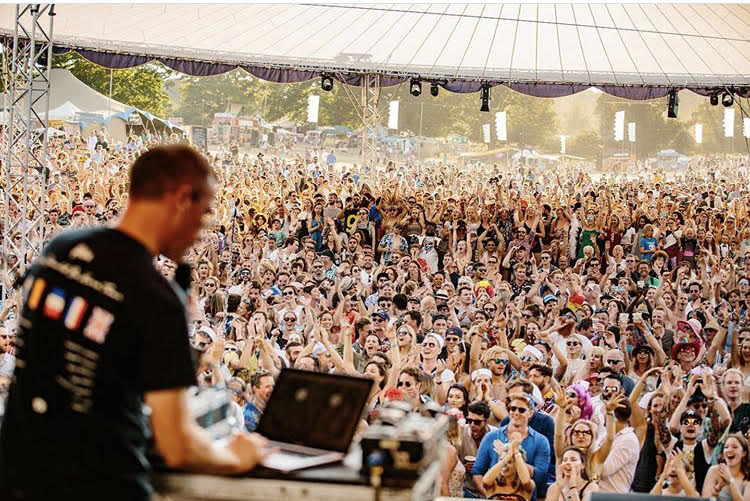
What impact do you see the lockdown having on the music people are playing in online sets, and seeming to listen to? Do you think that will make a difference when clubs re-open?
I’d love to think it will make a difference to clubbing in the sense that in recent years the scope of people’s desires of what they want to hear have been limiting, so you never know maybe people will be more open-minded again when they return? I definitely think for all those rap/R&B/afrobeats DJs who’ve been moaning about having to play the same 10 songs each week, they should be using this opportunity to let the world know what really defines them musically. If I see someone mixing Mo Bamba into Sicko Mode into The Box on IG Live I’m definitely logging out ha ha!
What advice would you give a young DJ looking to start a long-term career in music today?
I think it depends what your motivation is. If it’s just to make a ton of money, then I could give a load of cynical advice that I certainly haven’t listened to all the time. However, if it’s to have a long sustainable career, and have an impact and a strong legacy (on either a small or large scale) I think just keep music, and your love for that, at the centre of everything. People will always respect the music people, and I think if you make decisions based on that you will always have good peace of mind if nothing else.
Anything else you want to tell our readers about?
Just that we’ll hopefully be back soon with Hip Hop Karaoke, Players Ball and all our other events – however, in the meantime people can join us on IG Live Every Thursday for our weekly Hip Hop Karaoke ‘Quaraoke’!!! And please check out our radio show The Regulator Show on Soho Radio – it really is for people who love deep dives into Rap and R&B!
Heavy Hits
Rob Pursey’s Lockdown List

DJs – the most versatile workers in the world!
We DJs face an even more uncertain year than we are used to, and that’s working in an already unusually flaky industry!
So, I thought I’d explore what transferable skills we might be able to bring to the table if we need to find a way to make ends meet in the time before clubs and venues re-open.
Aircraft Marshall
One of the key skills of any successful DJ is being able to wave your hands in the air, like you just don’t care. This experience could be repurposed to help aircraft to their allotted gates. Also, DJs are used to working in noisy environments, so this aspect will provide no barrier to entry, and our experience of working at unsociable hours mean that those early and late flights will present no problems at all.

Body Language Interpreter
We just mentioned the noise that DJs are used to working around. Well, one of the skills we pick up is a fine sense of reading people’s hand signals and body language. Whether its those girls who have decided that you need to skip this song (usually a rolling hands gesture, or sometimes a hand/throat-slash move), or those guys who want to let you know that they approve with their little glance and nod, DJs have a finely honed instinct for this stuff, and so would easily slip into this industry with success.
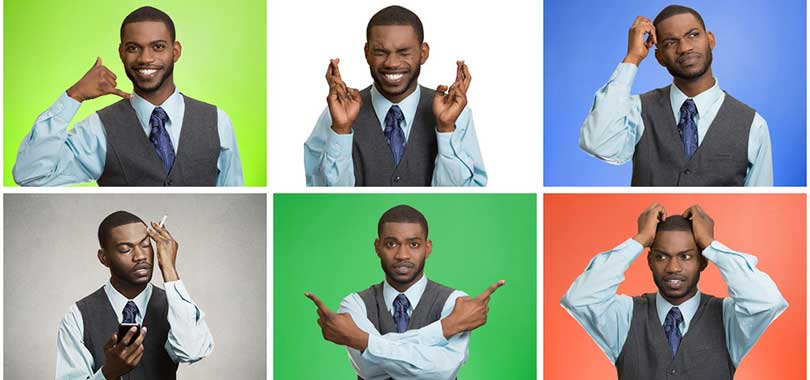
Psychic
The best DJs have a 6th sense for what needs to be played next. They are able to peer into the souls of their dancefloor, summon the cosmic energy of JuJu, and pluck the perfect tune for the moment. They have a mastery of knowing what the people want before the people have even realised it. By directing this mystical power towards other areas, DJs could completely dominate the world of clairvoyants.
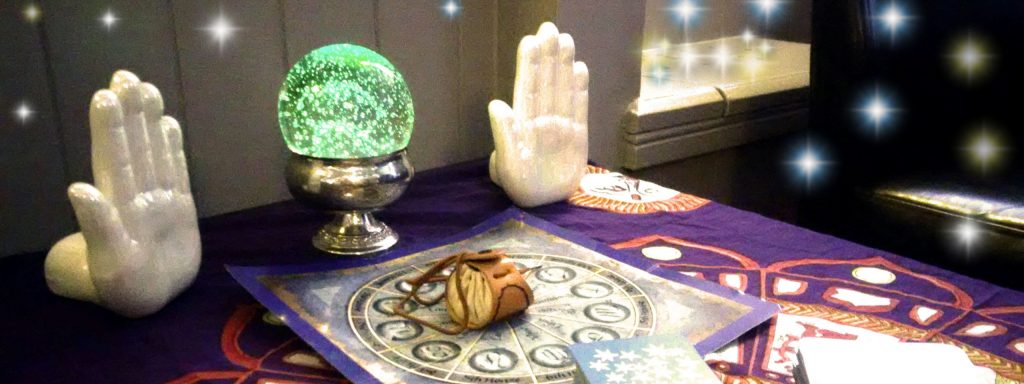
Diplomatic Envoy
Occasionally we just have to say no to requests. Patrons rarely expect to hear the word “no”, and so there are numerous ways that the DJ community have worked out which enable us to let them down gently, which will avoid the problem escalating. “I’m afraid I don’t have that, great song though!”, “Unfortunately the venue has a strict music policy”, “Ah, I already played that earlier, sorry!”, and many more
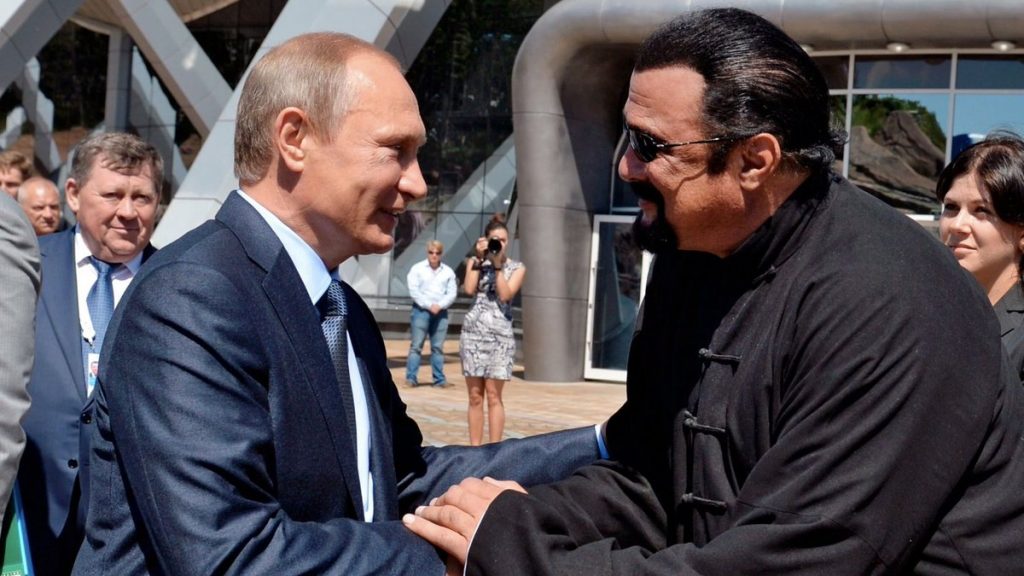
Conflict Resolution & Mediation
Sometimes, the problem *does* escalate, often a consequence of a breakdown in communication caused by customers not having our advanced doctorates in Body Language, but instead having a Masters in Being Really Really Drunk And Annoying. We have a limited amount of time before the next track, so need to be expert in de-escalating the extreme frustration of a Lady Gaga fan who just found out that that the hip-hop DJ they are harassing doesn’t have Born This Way. With this skillset properly harnessed, the UN could achieve global peace by 2027.

Logistics Manager
When it comes to multitasking, DJs are 2nd to none. Mixing the next track in, while handling a requester, while texting the promoter to get a group of friends in, while pounding a tequila shot with the bar manager, while mentally planning the next section of the night, while making sure that the DJ booth crew don’t touch anything important… We are constantly spinning plates in a pressure-cooker environment, with no margin for error. Its clear that most DJs would function at an elite-level in a logistics role.
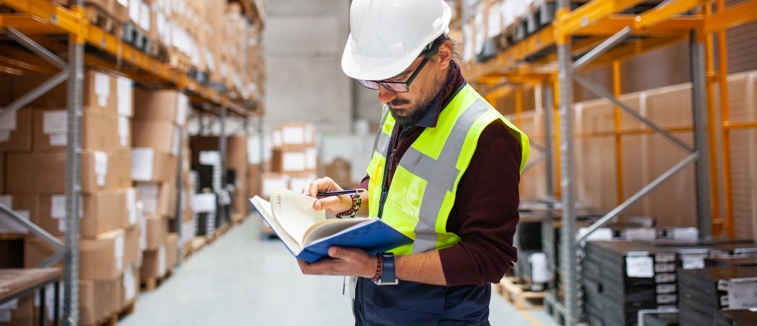
Social Media Manager
A reality of modern DJing is the importance of a strong social media presence. Creating a popular viral video gained me 10k extra likes on my Facebook page in a week, for literally 3 minutes work. The Stanton Warriors took this to the next level, now having well over a million likes on their Facebook page, many drawn their by their brilliant use of memes. DJs with a strong Instagram presence get free products left, right and centre, and the option to do paid advertising via product placement. Taking this knowledge base and applying it to a corporate role is a slam dunk for DJs who need work while the world’s clubs are closed.
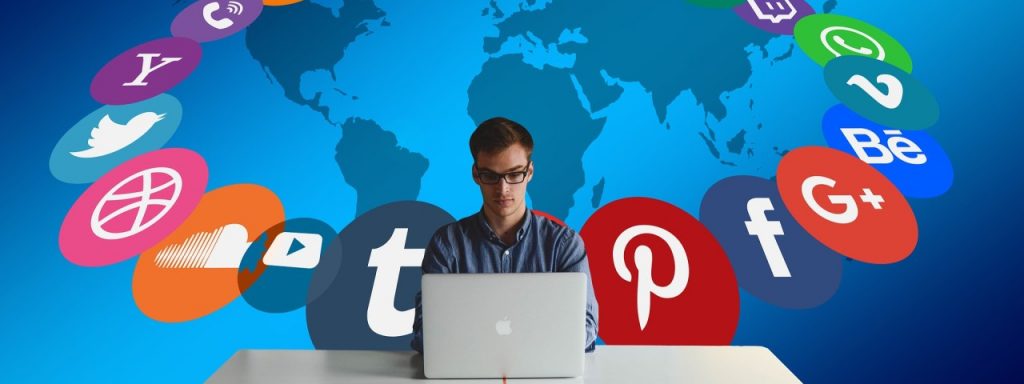
Fire Officer
For years, DJs have known how to deal with a situation where the roof, the roof, the roof is on fire. And unlike most fire officers, we don’t need no water. Our solution (let the mothersucker burn) is unconventional, but in an age of disruptors and innovators, I don’t see why that should hold us back in that industry.
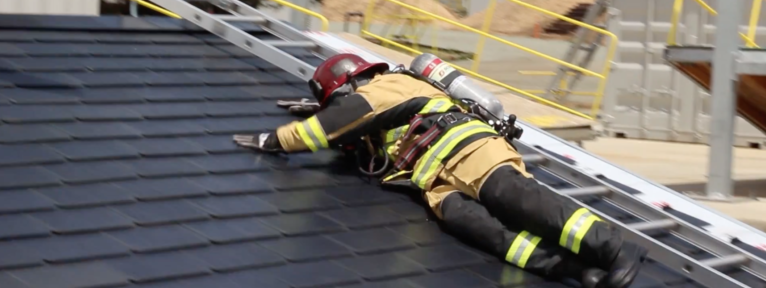
Of course, what we all want more than anything is to get back to DJing in clubs, bars and venues as soon as possible!
For now, stay safe and healthy, and keep your musical crates topped up at Heavy Hits. Follow me over on my Instagram

DJ Tech News Update – Rekordbox 6 and Mixcloud Live
There’s been a couple of recent updates to the world of DJ Tech which are worth covering in the blog.
First up, a brand new version of Pioneer Rekordbox is out, version 6. It looks a lot better, with far improved waveforms, but beyond that, this does seem to be a genuinely major update, and they have a fascinating new feature – Cloud Library Sync. With this function, coordinated with Dropbox, you can sync your library across up to 4 devices, allowing you to edit and save on the go. It is the first DJ company to provide this feature, which is very similar in concept to how many store their photos.
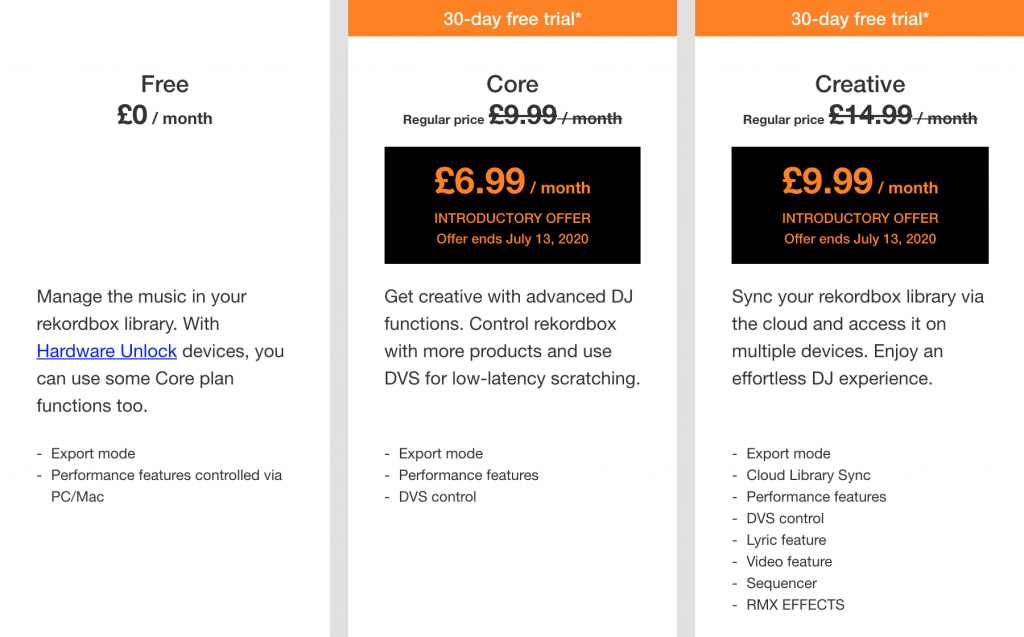
It is a paid function – so it will have to be pretty special to get much uptake. But cloud DJing is something that we have explored before, and with the arrival of 5G, it could well be the future of DJing. So this feature is a logical direction for Rekordbox to take. But how many will want to sign up for a monthly fee to use their software? Recent Denon controllers included WiFi connectivity – presumably the goal is to be able to DJ from your own cloud library via Pioneer devices.
Check out in more depth in this video, and there’s a real deep dive into the software and implications here.
Elsewhere, we have spoken recently about the options available for live-streaming DJ sets online. One of the major issues faced by many DJs is the problem of copyright takedowns terminating broadcasts, and repeat offenders getting their live privileges revoked by social media platforms.
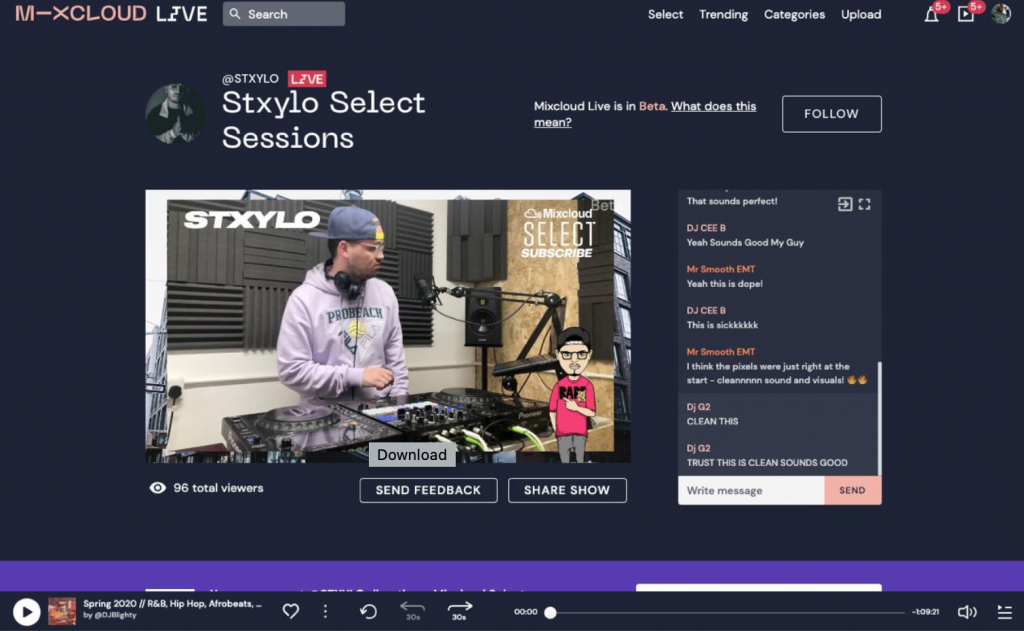
Mixcloud have seen this, and have brought forward the release of their live function, which is currently in beta – so there will be bugs and glitches for now, but expect those to be worked out as more users join.
This move actually makes a lot of sense – they’ve found a way to host DJ mixes and license the music which record companies are happy with, and have introduced a subscription model for premium accounts, including the option to paywall some content for subscribers only. This means that DJs have the possibility of generating some income from fans who are prepared to pay a small amount per month towards their Mixcloud channel.
You are provided with a stream key and url, to use through things software like OBS (covered in this article). You need to have a Mixcloud Pro account, but at the moment they have a 90 day free trial, and it is then $7.99/£9 per month after that.
All in all, these are two really interesting, and potentially game-changing, developments in DJ technology!
Go charge up your crates at the Heavy Hits pool, and head over to my Instagram here.
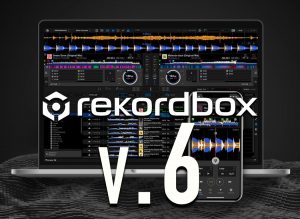
Doing Good in a Bad Situation
In the last few years, I have got really into Stoicism – the ancient philosophy of the Stoics, such as Marcus Aurelius, Seneca and Epictetus. One of the themes in their teachings is that adversity is a chance to show character, and develop your good attributes through right action.
Well… I didn’t really expect the world to be thrust into the kind of adversity that 2020 has generously handed us all, but here we are. We have adversity. Plenty of it, more than enough to go round.
So, we are left with choices about how to face down this challenge – and, happily, a lot of people are choosing to do good, to serve their communities, to help others through this difficult time. Its a pleasing reminder of the goodness of mankind that is there, so easy to forget.
In some instances, its been larger institutions offering hardship funds for musicians – for instance, Help Musicians launched Corona Musicians in the UK, offering £500 hardship grants to musicians suddenly cut off from making income. This had an incredible uptake, showing the trouble that many in the music industry face when unable to perform at events. While this particular fund is now finished, they will be rolling out new initiatives soon for musicians facing hardship.
UPDATE: Having received well in excess of 17,000 applications for the Coronavirus Financial Hardship Fund, we are now pausing the fund while our team take a much-needed break over Easter. We are still fundraising in order to pay all that are eligible.
— Help Musicians (@HelpMusiciansUK) April 9, 2020
The Recording Academy (the people behind The Grammys) launched the COVID-19 Relief Fund, in partnership with their affiliated charitable foundation MusiCares.
Spotify has teamed up with various organisations to create a fund where every $1 donated (up to a maximum of $10m) will be matched by the streaming service. Called the Sustaining Creativity Fund, it is of the same ilk as the Help Musicians fund above, providing emergency grants for musicians and creators who are struggling. Interestingly, they are also working on a feature enabling artists to fundraise directly from their fans (music creators get a famously small amount of money per stream on Spotify, so a direct donate button could even be a great addition for after the crisis, much like how Bandcamp allows you to pay more for a track if you wish to)
Its great to see music companies stepping up in the way you’d hope, but even more impressive has been the way that DJs big and small have come together to raise funds for charities, food banks, and help people in this unusual and stressful time.
Ever the character, legendary dance music figure Fatboy Slim has announced that he is throwing a huge free party for NHS workers in his hometown Brighton, on 28th October.
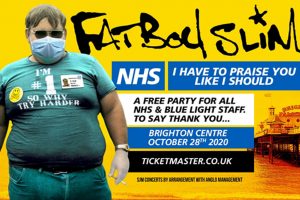
Beatport ran a 24-hour livestream called ReConnect which featured some of the biggest names in dance music, and raised over $185k for COVID-related charities. DJs like Carl Cox, A-Trak, Toddy Terry and Nina Kraviz were involved. After the huge success of this fundraiser, they announced a follow-up for Friday 17th April, 36 artists across 36 hours, from Tiesto to Maceo Plex to Claude Vonstroke to Jack Back (David Guetta) – you can only think that if they have more success, this will become a feature of lockdown life!
Resident Advisor have done a great job of compiling multiple resources in one easy-to-access page – a genuinely global selection, with a short explanation of each. AdHoc, a Brooklyn-based concert promoter and publication, have put together this page with various suggestions for ways to help. Both of these have a real wealth of ideas an information, well worth a look.
At the top end of the pop world, Rihanna’s charitable foundation donated $5m towards efforts fighting COVID-19, benefiting various organisations. Both Rihanna and Jay-Z’s foundations also donated $2m between them to efforts in New York and Los Angeles.
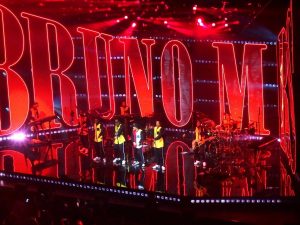
Bruno Mars donated $1m to the MGM Resorts Foundation (matching the launch donation by MGM Resorts themselves), to support MGM employees impacted economically by the Coronavirus. “The people at MGM have given Bruno Mars the rare opportunity to be able to continuously gig while he’s in the creative process of working on his next album. With the closures across Las Vegas, Bruno wanted to show his appreciation to the amazing employees who help make these shows possible in hopes that we’ll all be out of this situation and having fun together again very soon”.
Legendary singer-songwriter Dolly Parton donated $1m towards the search for a vaccine, while Taylor Swift donated to her favourite record store in her hometown, as well as paying their health insurance for 3 month, and also made a donation to Feeding America. They also benefitted from Elton John’s “Living Room Concert For America“, which filled the gap in the schedules of the cancelled iHeart Radio Music Awards. Stars like Mariah Carey and Dave Grohl pitched in with performances!
DJ Khaled’s We The Best foundation donated 10k masks, as well as gloves and PPE for frontline healthcare workers in Miami and New York, and is working with SimpleHuman to provide touch-free soap pumps to communities across the USA, starting in Los Angeles.
Uk Garage legend DJ EZ partnered with Boiler Room to perform a 24 hour set to raise money, and afterward left this inspiring message in a thread on Twitter.
There is so much goodness in the world, let’s embrace it and remind ourselves of the importance of hope, kindness and love, these are the things that truly change the world.
[Read more…]
— DJ EZ (@DJEZOfficial) March 31, 2020
It was of course EZ and Boiler Room that gave us one of the definitive DJ moments of the 21st Century…
Boiler Room have also been running sessions called Streaming From Isolation, with sets from across the spectrum, including from underground superstars Dixon, The Black Madonna and Four Tet. Funds raised are going to the Global FoodBanking Network.
This crisis has led to some unexpected, but inspiring, changes in how DJs are living their lives. London’s Gscratch is normally busy DJing multiple gigs a week, but had been volunteering for his local food bank for a while on the side. Then, when the COVID storm hit and all the clubs closed, his boss suggested he take on an expanded role, meaning he was able to keep some money coming in, and serve his community even more than before, right when it needed it the most.
“The way I see it, I have been earning my living playing music like grime and hip hop that comes from the struggle in these communities. I think its only right to give something back however I can. And I think that helping your community is a huge benefit mentally as well – it really helps me put my own problem’s in perspective, and its a such a positive thing to be able to help people who need it”
Others have used their platform to raise money – Complexion runs his popular Future Beats Show, and saw an opportunity to help when he had lots of fans wanting to make donations to his show.
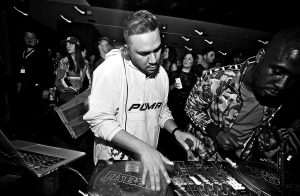
“I’m very lucky in the sense that a lot of my listeners are always asking me where they can send money to me for the radio show, I’ve never wanted to accept anything because I’ve always felt that the money should be going to the musicians. As someone whose income depends solely on DJing, not being to work for the foreseeable future is a scary thing, luckily Soundcloud made it very easy to support their users by adding a support button to the profile page.
I was thinking I’d get 40-50 dollars which I’d put back into paying for my account, but the money just kept coming in and once I reached £500 I wanted to give some of that to charity, as a lot of people are struggling due to not being able to work. Every time I streamed or a new episode of the show came out people kept donating, on last count we had raised over £1600!
I’ve been very transparent with where the money will be going, a small sum is being used to purchase some equipment so I can keep broadcasting (a new mic, promotion etc), and the rest is making it’s way to food banks around the world. Whilst we’re in quarantine I’ll keep going with different streams and my radio show and support those that need help as much as I can.”
In Philadelphia, Michael The Lion (sometimes known as Apt One) is involved with 24HRPHL, helping to put together community resources in the fight against COVID-19. This grassroots group is a civics engagement project within Philly’s nightlife, arts and culture community. Full of useful information, this sort of resource is incredibly valuable for people struggling to navigate such a difficult time.
On Facebook #LIVEFORLOVE crew have raised almost £18k in just a few weeks through livestreamed DJ sets, from DJs like Deekline, Krafty Kuts and Artwork. All money is for the Trussell Trust, who run food banks across the UK.
And the event House of Dinosaur have been running all manner of ridiculously over the top livestreamed events and activities (called Isolation Station!) to keep people entertained and exercised, always with a fundraising link on display.
You don’t need to be an organisation, or have an established podcast/radio show – UK DJ Ollie Beavis set up a Just Giving page for a livestream, and smashed his target, way beyond his wildest expectations. People are looking for ways to contribute, and DJs are in a great position to give them a way to do so, while entertaining them.
Hell – you can even get really creative with how to raise money. The comments sections for all underground DJ sets are covered in “ID?” track ID comments – Alec Falconer came up with a novel way to leverage that into fundraising…

So, as you can see – people are reaching out to help others, in an incredible variety of ways. DJs are used to being at the heart of many people’s leisure time, and while this situation presents a lot of professional challenges for anyone in the music industry, it also gives us a chance to do some good, entertain people through a difficult time, and raise money for worthy causes.
Head over to the pool to load up on the latest tracks, edits and remixes for your livestreams. And come follow me over on Instagram!

Martin 2 Smoove
It was my pleasure to get to ask today’s guest a few questions – Eve’s tour DJ, Gumball Rally resident, winner of Best DJ at the London Bar & Club Awards in 2017, and the man who Rihanna called “London’s hottest DJ” – high praise indeed! He’s played all over the world, alongside some of the biggest names in music, and has residencies at some of the hottest parties in London, such as Milkshake at Ministry of Sound, and London Reign Showclub. Lets hear what he has been up to…
Can you tell our readers a bit about how you first got into DJing, and some of your big achievements to date?
Hello everyone, I go by the name of Martin 2 Smoove, I’m a DJ, music programmer and curator and I’m trying to turn my hand to making edits (trying being the key word in that haha!).
I also love music which I think is the most important rule in doing this. In my opinion, It should be at the top of of your reasons as to why you want to become a DJ. I started collecting music at school, used to go without buying lunch and spending my lunch money on records or a record (as it was expensive back then).
I was inspired by great music played and presented amazingly well by people like Jazzy Jeff, Trevor Nelson, DJ Swing, Shortee Blitz, and Mark Ronson.
In terms of big achievements, I guess from winning awards and travelling the world I think the biggest achievement is making a living just playing music that I genuinely love.
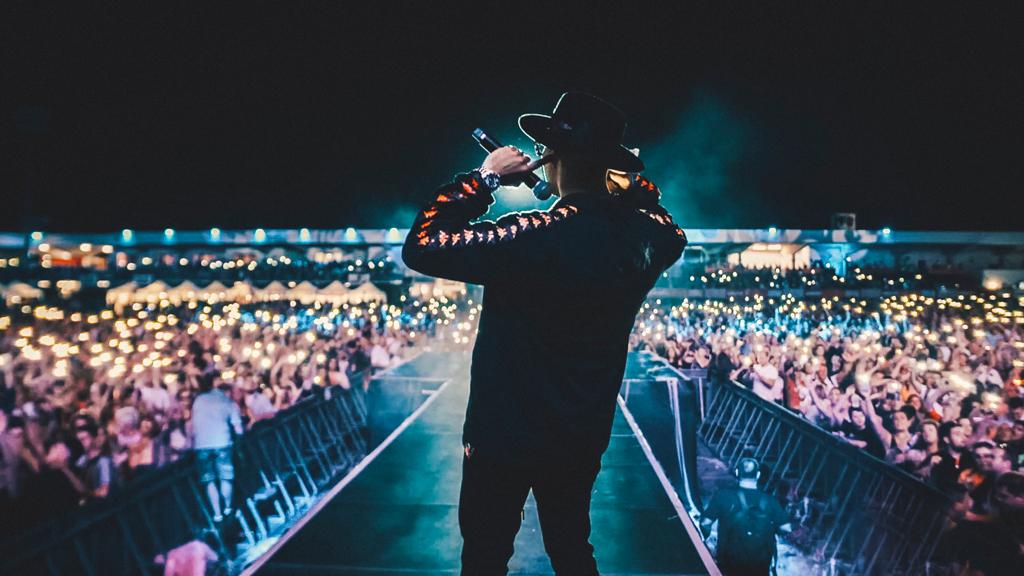
As I understand it, you really hustled to get your break DJing for Eve – can you tell us a bit about how that came about?
I wouldn’t actually say I even hustled for this. I think all my early part of my career was working crazy hours, doing interns at record labels, putting on events, giving flyers out, DJing at less desirable events for next to no money. I never had any family in the music industry so getting any short cuts inroads wasn’t really an option. That’s not dissing anyone that has it, you have to use whatever you can.
So before DJing for Eve I got put forward to DJ for a G called Cleo Sol (an amazing singer, and song writer from west London) by Ben Scarrs and Hanif Boogie whom are Dave and Splurge Boyz managers. It’s funny because a few months earlier I tweeted I really wanted to be an artist’s DJ then got asked to do a tour for the MOBOs with Cleo, and worked with her for a few years.
So fast forward to 2013 I got a call from a gentleman called Matchstick (who used to be my boss as an intern at Atlantic records) saying that he has an American artist that is looking for a tour a DJ, at the time Cleo was taking a sabbatical, so I said yes. I wasn’t told who the artist was but I had to go and meet them at another place which I interned as a uni student (wise buddah). Turned out it was Eve. Obviously I was a little nervous there was a hip hop legend in the room and I was going through her show etc.
So we did two shows; one was for Lovedough (where I was a resident at), and one was a big show at Heaven, to coincide with her album launch. I completely messed up the important show in terms of song order. But Eve genuinely is one of the best MCs live, she sounds exactly like she does on CDs, she looks like a rockstar and just has presence and she just carried on like nothing happened.
After that show I honestly thought that was it and that was my last one as her DJ. But got a call a couple of weeks later for another gig abroad and 7 years on as her DJ the rest is history. I’m definitely super lucky to work such a G. She’s genuinely the dopest to work with and her, and her husband Max has become a good friend along the way.
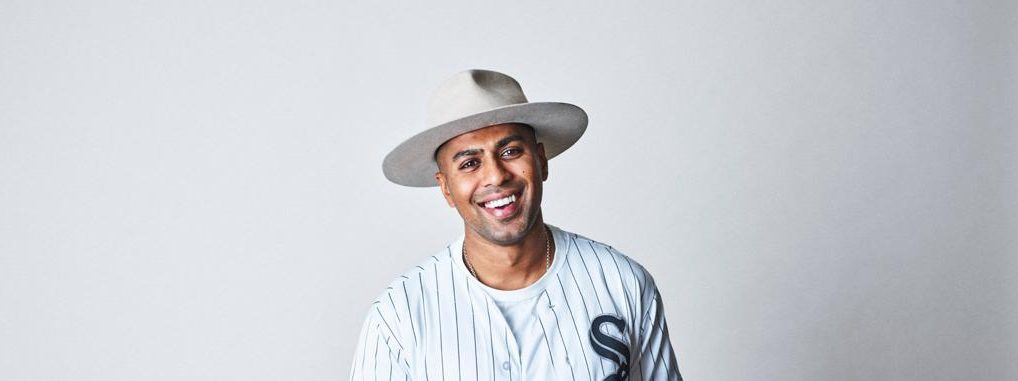
You’ve got a reputation as one of the nicest guys in the game – where does that mentality come from, and why is it important to you to do business that way?
It’s not my intentions to try and be a “nice guy”, I was just brought up with two parents that taught me to treat people well. I think if you’re doing business or anything you do in life if you do things in a positive manner and attitude and you treat people the way you’d like to be treated 99 percent of the times you get greeted back with the same response.
I know you are probably NDA’d up to the eyeballs, but you do quite a few big celeb parties – how do you find DJing with some of the most famous names in the world dancing around you and making requests? Do you have any stand-out moments you are allowed to share?
Honestly you just have to treat it like any other gig. I’m there to entertain whoever is there in front of me. But the nice thing with these gigs is you’ll know who’s going to be there before you get there. So you can do research, so if I’m playing for Tommy Hilfiger or Bono/U2 I can do my research on what they personally like and throw a few of those in.
Personally I wouldn’t want to share a lot of those moments because that’s their time to just release and not have everyone on their case that’s why as much as I’d like a pic with Madonna or Samuel L Jackson I’m not going to take a selfie with them. They wanna have their fun!
But some moments have included getting fist bumps off the Prime Minister at the time or throwing a mic to Bono and him catching it and singing it. I’ll leave it at that.
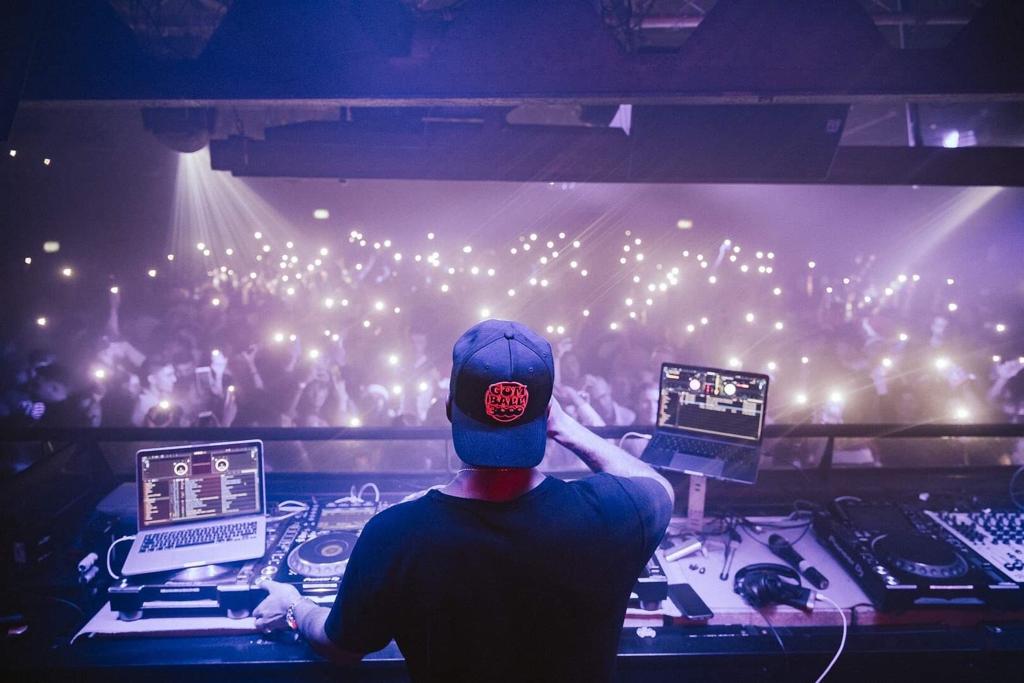
You’ve seen both sides of the game – as a DJ, and as a promoter – and so have a very rounded, even perspective. What things would you say DJs need to consider about the industry that they sometimes forget?
Treat people with the same respect as you want to be treated no matter if it’s the glass collector or the prime minister. Another is you’re there to entertain, give the people that’s in front of you the most fun they could possibly have.
What’s the most fun party you play regularly? And what’s the moment in your career where you had the most “wow, this is crazy” feeling?
There’s so many things I do that I find fun, in fact is go as far as saying as I do so many different things I find it all fun. Whether it’s playing the latest hip hop and trap to students of London at the main room at Ministry of Sound or touring with Eve or Romesh, even doing some of the cool corporate or private parties or even the festivals. I love genuinely love doing them all
You’ve become the resident DJ for the Hip Hop Saved My Life podcast – how has your time on the mic in clubs prepared you for interacting with a comedian like Romesh on stage!? And how important do you think mic work is in general for a DJ?
I love working Romesh, the guys a genius!! He loves hip hop, like really loves it. I don’t know how he has time to filter through all this new music with everything he does. His whole team are amazing and just a pleasure/honour to work with.
His shows are wicked and ones I just feel at ease doing, I love the music, his crowd is great and I can be as hype as I want to be to get the show warmed up.
I think just learning it all is important doing mic work, being able to be technically apt and cut up a record but most importantly I think your song selection and how you drop tracks is the most important trait of being a DJ
Big up man like Romesh!
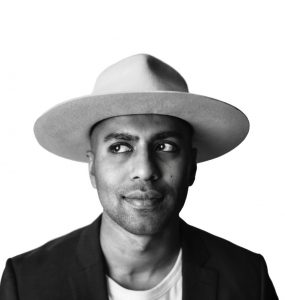
What advice would you give a DJ that is keen to grow out from just playing traditional club and bar gigs?
Do things authentically, and be genuine. If you see something that you really want to do put it out there and try and make the right moves organically rather than it being forced and in the long run you’ll make the right relationships that are sincere that can put you in those places.
You’ve also moved into booking DJs for several venues – what sort of things do you look for in the DJs you have on your roster?
Great question.
1) They’re good people
2) They’re great professional DJs at rocking the crowds at those venues
3) They’re team players.
4) They act and look the part
5) This isn’t the most important thing, but having social media account that represents them is important
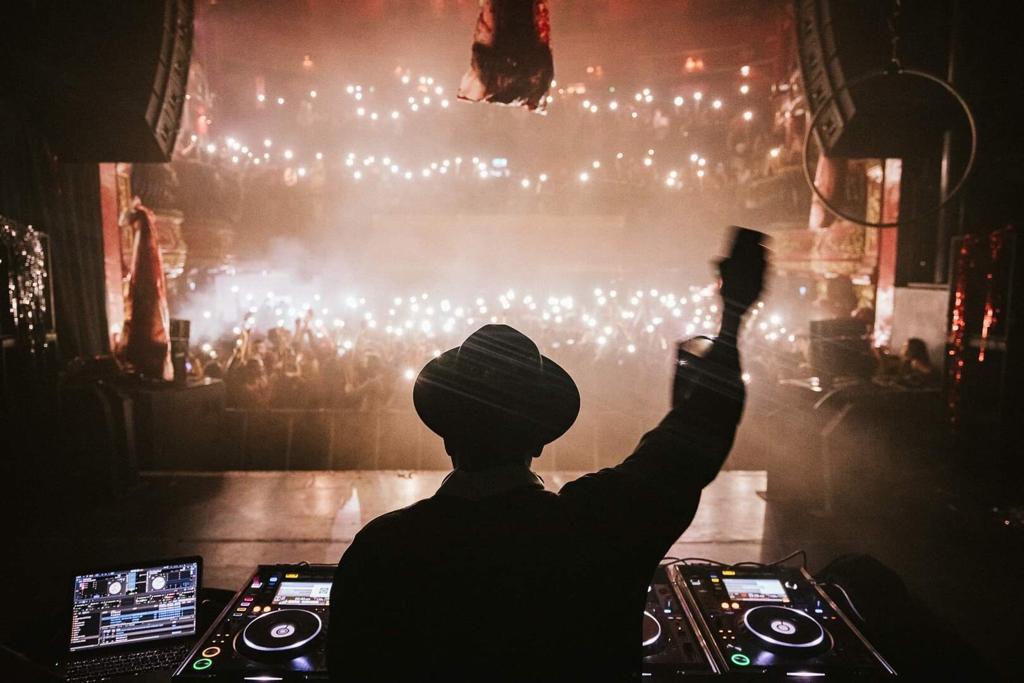
If you could book a dream line-up for a festival stage, which DJs would you go for?
Artists wise, as it’s a dream line up I can have people that have passed away
Prince
Kanye West
Janet Jackson
Bruno Mars
Eve
Kaytranada
DJ Jazzy Jeff
Mark Ronson
A-Trak
Andy Purnell
Hosted by Trevor Nelson, and me DJing inbetween.
Check out Martin’s website here, and his Instagram here
Want to get your game up to this sort of level? You’re going to need some bangers! Get digging for your tunes over at the Heavy Hits pool!
And follow me over here
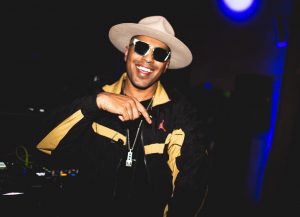
Mixing & Snacking
There are few things that unite the DJ community. But one that definitely does is a love of snacks.
Whether in the booth during a long set, or on a journey to a city far away, DJs feel passionate about their snacks of choice. I spoke to a selection to find out what gets their mouths salivating!
First port of call could only be one man – DJ Food, from legendary label Ninja Tune “I never eat in the booth unless it’s an emergency, nothing fancy on the rider, a decent sandwich, a good cooked breakfast in a local cafe is nice the day after, sushi is always a treat too. Black tea and biscuits are a must.”
A popular pick is cereal and nut bars – I myself am very partial to Nakd fruit & nut bars (lemon drizzle flavour probably my favourite). Martin 2 Smoove (Eve’s tour DJ, and Gumball rally resident) is an advocate for flapjacks and cereal bars when he’s out gigging, and keeps Airwaves gum to make sure his breath stays fresh! DJP gives a big shout out to Nature Valley bars, and favours Wrigley’s Extra Bubble Gum flavour!
Hip Hop Karaoke DJ & promoter Rob Pursey has a hell of a life-hack – “A Tracker [granola bar]will neutralise any sort of garlicky meal that you have pre-gig. I once had Merguez sausage before a gig – went in on a peanut Tracker. NEUTRALISE.”
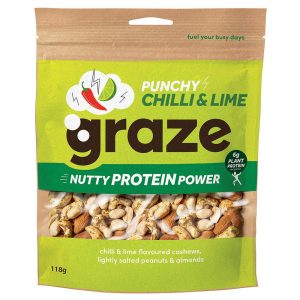
House heavyweight Low Steppa is a man after my own heart – he recommends the amazing Graze Chilli & Lime Nuts. Truly a Rolls Royce of the snacking world, and a very filling, healthy snack to boot! Another vote to the power of some mixed nuts comes from London disco queen Sophie Lloyd, although she is pretty open-minded – “Oh gosh, it’s usually whatever I can lay my hands on!”
Barely Legal is one of the busiest DJs on the circuit, and she knows how to snack well “I’ll usually pick up some snacks at the train station, will try find a Marks & Spencer and opt for fruit salad, variety of crisps and a sandwich (crisps are good post rave snacks when it’s late and you get back to your hotel, but room service isn’t running anymore). They also do these deli dishes 3 for £7. I usually get the king prawns, calamari and mozzarella and sun dried tomatoes. I keep it boujee on the move”. Check out her amazing Essential Mix here
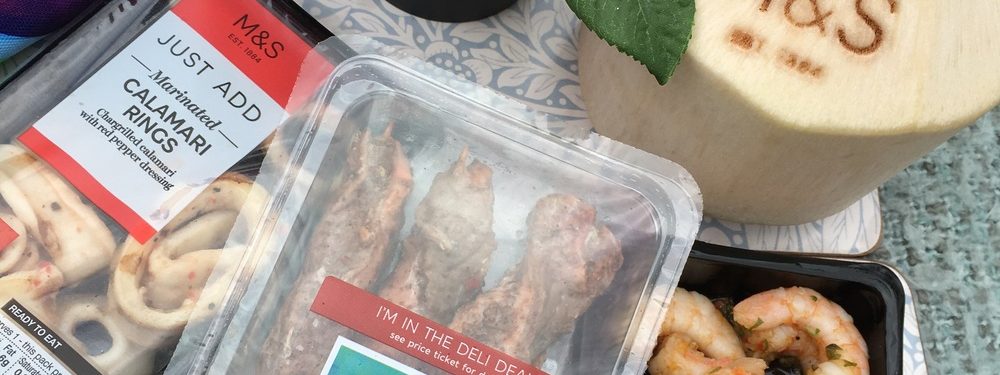
Red Rack’em (the man behind 2016 festival anthem Wonky Bassline Disco Banger) is used to touring, and so has some good ideas “If I am travelling through London I like a sashimi salad from Wasabi. It’s really good value and makes me feel healthy. I sometimes steal the biscuits from hotel rooms as a snack for in the club, but to be honest I don’t tend to eat when I play. I usually get a nice meal before the gig so am usually still full up when playing.
But actually you’ve reminded me about Berlin daytime sets. I used to bring bread, cheese, ham, tomatoes and cucumber and a boiled egg in plastic tubs and have a nice breakfast in the booth. Generally when playing outside at about blank. I can remember using the table tennis table to make sandwiches in their garden before I played too. I think pizza is a good thing to eat during a set too as you don’t need cutlery. It’s easy to subtly eat pizza while DJing….”
Pizza is a theme for DJ Yoda – “I’ve definitely told this story before, but seeing Coldcut at Blue Note in the late 90s order pizza delivery to the DJ booth was one of the things that made me want to be a pro DJ”. He managed to take this to another level, by having chicken & waffles in the booth. DJ Yoda’s Essential Mix is here
Skratch Bastid keeps it on brand for his redhead fam – he’s a big fan of Ginger Chews! And of course, when he throws his Bastid BBQs there is no shortage of great food around!

Metalheadz alumni, and bass don, Detboi knows what he likes – “Apple tart – and just about anything with cinnamon in it. There’s a cafe called “The Farmhouse” on the Long Mile Road in Dublin .. it serves the nicest slice of apple tart in Europe”
Radio 1 DJ Mistajam is another who tours a lot – he has a simple recipe for snack success. “Beef Jerky. Popchips. Pink Lady Apples, BUT only if they’re straight from the fridge” I can confirm that Popchips are AMAZING, and apples are a great healthy snack on the go. Beef jerky is a great way to fill a hole in your stomach on the go, protein is great for keeping you satisfied for a long time.
Breaks legends Stanton Warriors have been touring for decades – for Dominic Butler, the answer is “Sushi, as it’s the lightest of the take away foods! No one wants a bloated carb baby before at a gig! I just Google the best Japanese spot in each city”. Check out their Essential Mix here.
Philadelphia stalwart Michael The Lion understands the importance of pragmatism – “When you play long sets, especially at places that serve food, there’s always the temptation to snack while DJing. But that can be a tough proposition because most of the best snacks are finger food. You can’t get grease and crumbs on the equipment or your records – you’ll destroy them. I also tend to think that as long as there’s this dumb pre-occupation with watching DJs while they play – it’s kind of off-putting to eat while you are DJing. Watching people eat is kinda gross to me. That said, if I must – my go to is the sea trout sushi at my residency at the JG Sky High bar in Philly – it’s a place with very high end food and they have these fancy small plate snacks. I always manage to eat two orders of those things every time I play.”
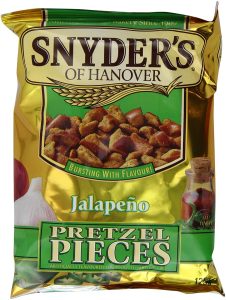
Acid master Posthuman has featured on this blog before, but he is also a man of refined tastes with regards to snacks. “If I can get them, Snyders pretzel pieces – jalapeno flavour. Seabrook’s Worcester sauce used to be my jam, but they were discontinued a few years ago. Literally the best tasting crisps on earth. I also have a little post-gig ritual: pastrami sandwich, chocolate milk, and a magazine on the journey home. Seriously, used to do this nearly every weekend if i could.”
As you can see, if there is anything that unites the DJ community, it is a love of food and snacks!
Head over to the Heavy Hits pool to satisfy your musical appetite, and follow me on Instagram, Facebook or Twitter

3 Examples of Livestreaming DJ Set-Ups
DJs love to share their music selections with the world, but circumstances have come together to make this a whole lot trickier in 2020. Today, I’m going to run through my super simple set-up, and speak with two DJs about their approaches to livestreaming, to give an idea of the options.
This isn’t going to be a comprehensive guide – there’s a million ways to livestream, dozens of platforms, and everyone has slightly different set-ups. I’ll link some useful resources at the end of the article, but this is more to show a few working examples, and hopefully inspire you guys to work out a way that works for you!
My set-up
I am not very technically minded, so I have a pretty simple set-up that I have seen streaming with.
I go from the XLR output of my mixer to a Behringer UMC202 soundcard – the key thing here apparently is the Core Audio that this soundcard has. From there, I output a USB cable, which is plugged into an adaptor cable to switch it from USB A to USB C – this is the one I have. From there I go into my phone – a Google Pixel 3XL, which fortunately has an incredible front-facing camera. I use a Joby stand to position it so the decks and me are in shot clearly. From there, I simply head to Instagram, Facebook, whatever. Start a live set, and away I go – a crucial thing is to make sure the master out is not very high, or else you risk distorting the signal, which sounds HORRIBLE at the listener end! I use a Shure SM58 through the mixer to chat to my viewers. I generally ask my audience how it sounds early on to be sure!
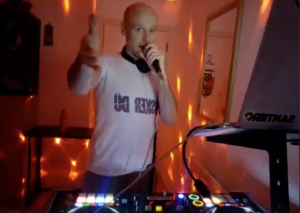
I’ve ordered a microphone stand (yet to arrive!), and some simple lights for after-dark sets, to make it all a bit more visually appealing.
So far this set-up is working really well for me – lots of people contacting me, asking how I get the sound so good. I read and respond to comments on my laptop. Speaking plenty helps keep the copyright cops at bay, and people like to get a sense of your personality, and its nice to have that human contact during a lockdown too!
Friends and fans are really enjoying me playing different stuff to the average too – I think this is a great opportunity for DJs to really explore their crates, express their personalities, and stand out from the crowd.
Kevin Kong
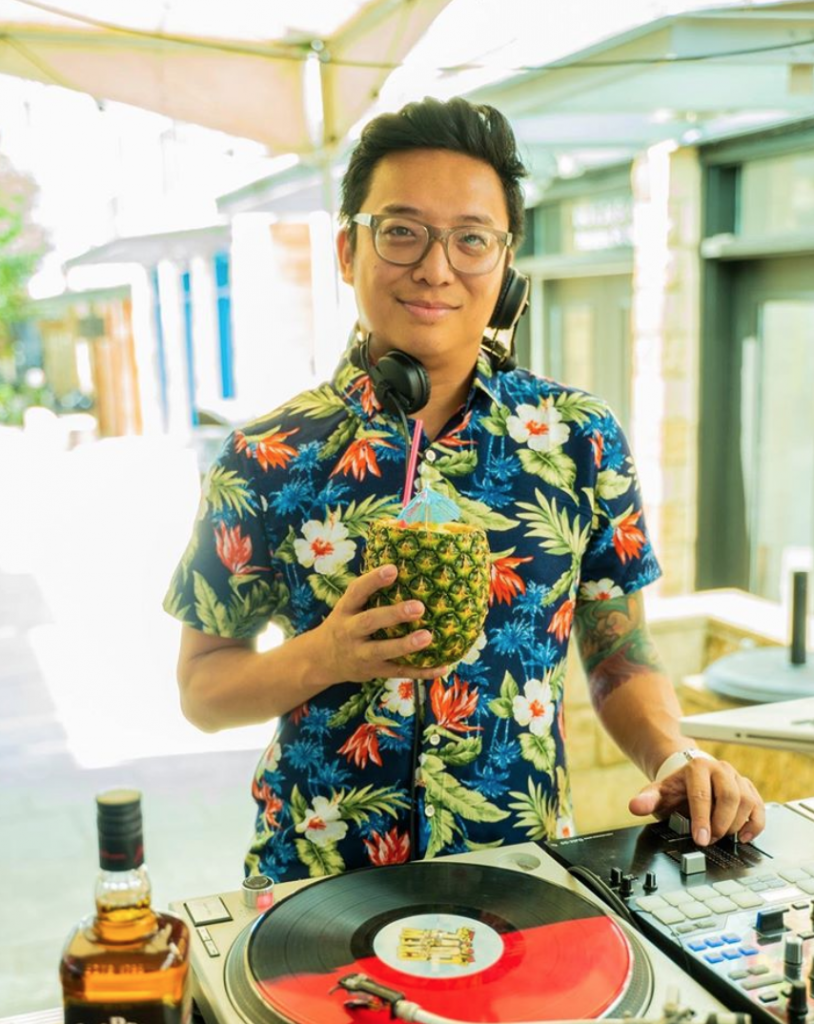
Can you tell us a bit about yourself?
My name is Kevin. I’ve been living and DJing in Philly since 2000. Professionally for maybe the past 6-7 years. I mostly play open format stuff these days. I’ve always been interested in video game stream son twitch, but only been personally streaming since last Monday, March 16th, the day we began our quarantine here in Philadelphia. More deets at kevinthedj.com
So what is your current streaming set-up, and how did that evolve? Why did you settle on that set-up?
I am currently DJing and streaming on a 2018 13″ Macbook Pro i5 with pretty modest specs. All the DJing, encoding, and broadcasting is done on the same MBP. Though I eventually want to do the encoding and broadcasting on a separate PC with a proper GPU. As for the peripherals, I’ve been having trouble outputting digital audio from my Pioneer S9 (the vinyl control tone is being sent to the audio out and I can’t figure out how to mute it), so I am doing the DJing on a Pioneer DDJ-SR2. I have a Shure SM58 on a mic stand, the main camera is just the MBP face cam, and my secondary camera is my iPhone XR connected via USB with the OBS Camera app ($17USD). Everything is sent to OBS Studio (open source freeware) which is available on all operating systems. Some of my interactive on-screen features are browser plug-ins that can be found for free on the interwebz.
We are going into the 24th consecutive day of streaming 16:00-19:00 ET. I’ve done my best to add a new feature and improve quality of the stream every day since we started. But I imagine eventually we will run out of things to add.
I settled on this setup because it is literally what I had laying around when we lost all of our gigs and income due to you-know-what. So I’m making do with what I (fortunately) have.
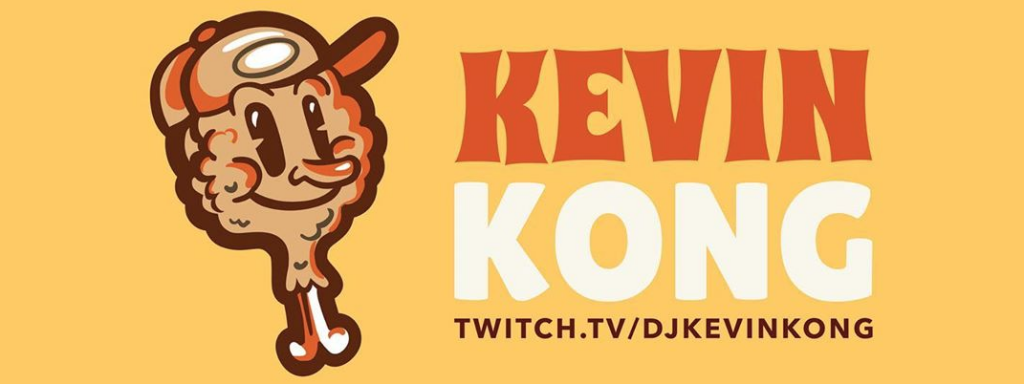
What is the easiest/cheapest way for someone to get started?
Use what you have! You could just use your smart phone. But if you want overlays and interactive features on screen, at minimum, you need a computer with a camera that can run your DJ software and OBS at the same time, and an internet connection that can handle uploading 6MB/s consistently.
Are there ways to do it on both Android and iPhone devices?
I don’t use any smart devices for streaming other than my phone as an extra camera. From what I’ve researched, the Roland Go Mixer is the gadget you need if you want to stream from your smart device.
What are some noob mistakes to avoid when live-streaming DJ sets?
Don’t just aim your phone camera on your bedroom setup and rely on the crappy phone mic to pickup the sound. Use direct audio-in like with the Go Mixer linked above, and put a mic on a stand. I know most DJs don’t talk to the crowd that much at a real club setting, but streaming is different. If you want to build an audience, you need to interact with your community. For the most part, people will care more about your personality and interactions than your DJ skills. Watch pro twitch streamers who maintain 5-30K viewers every day and see how they build their community.
Whats the best streaming set up money can buy (within a couple of hundred bucks budget!)?
If you’re not comfortable with using OBS (free), you can pull off a pretty legit stream with your phone or tablet with the Go Mixer linked above ($100 USD).
Stream: twitch.tv/djkevinkong
Site: kevinthedj.com
All social media: @djkevinkong
RandomBeat
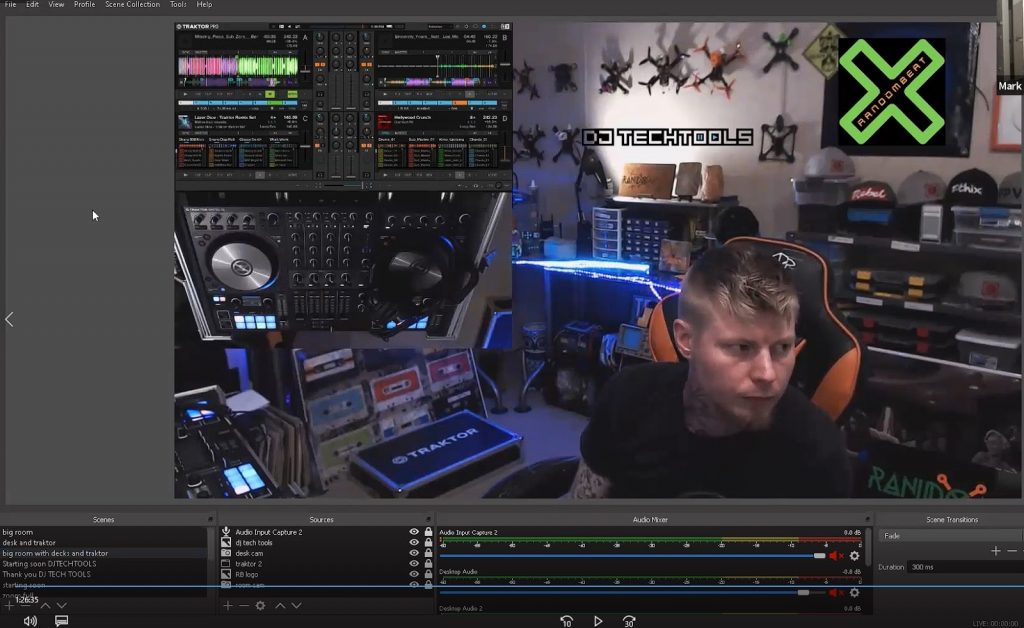
Can you tell us a bit about yourself?
I began my journey into music in 1996 when my father bought me a drum machine for my 15th birthday. I quickly realized I loved electronic beats, and added a sampler and a keyboard. Next thing was a computer and soundcard, and sony acid 2.0 (looping/recording program)
I decided I wanted to try and be a mobile DJ, so I went to a local shop and put in an application. The DJ who took my application invited me to a private warehouse party that weekend.
I played what was more of a “Live PA” set at that first party, but soon switched to vinyl, and played alongside many of my favourites from the breaks scene.
I ended up combining technics 1200s with CDJs, then with Ableton and a midi controller. I was the first DJ to use Ableton in Knoxville, and got my fair share of nasty looks, and being told “the computer was doing the mixing” but anyone who watched what I was doing quickly changed their mind after listening. I was also the first DJ to play dubstep in Knoxville, and cleared several dancefloors trying to push this “new sound”!
A divorce led to me losing all my DJ/studio gear, and in 2012 I abandoned music completely. I discovered a new passion, drones.
I made a little name for myself doing drones and repairs, and doing an interview show on Youtube, making enough $ to quit my day job and focus on drones full time.
About 6 months ago I just got the itch to get back into music, my son was now 5 years old, and saw a DJ on youtube, and his mother said, your daddy used to do that, and his eyes lit up.
So I did a TON of research on gear, and ended up settling on Traktor as my DJ solution.
I’ve combined all my previous years of playing with my streaming knowledge from Drones, and here I am, ready to help and support anyone who needs help getting started. Here’s an example of my videos – a submission to Laidback Luke‘s label, Mixmash. I got 15th place out of 240 DJs and a shoutout on their youtube channel, super proud of that!
So what is your current streaming setup, and how did that evolve? Why did you settle on that setup?
I currently use a PC as my main computer for both streaming and running all the applications and DJ software. I was previously streaming a live interview show every week, so I have just adapted my scenes inside OBS broadcast software for Dj sets.
On the PC I run OBS and Zoom as well as VoiceMeeter Banana and Traktor software.
The Traktor S4MK3 DJ controller is physically routed from the booth output back into itself on Line C. I select Line C as my physical input #3 inside the VoiceMeeter Banana software, as well as my USB Audio Technica ATR Microphone as another physical input which is #1. I use #2 for my computer audio.
The Voice Meeter Banana software summs the physical inputs of my Mic and DJ Controller with the internal computer audio and outputs them on a “virtual cable” which I select as my input inside OBS or Zoom, depending on how I am streaming.
I have 2 physical cameras, both Logitech C920s setup as sources inside OBS, as well as some graphics (logos), and the traktor application is also set as a source inside OBS. One camera is a wide room shot, while the other camera is on my DJ Controller.
This allows me to show a mixture of Cameras and the Traktor Software or Zoom as well as add my logo and also GIFs for background visual effects.
I also have my “Audio Capture Device” as a source inside OBS, and it is selected as the Voice Meeter Banana VAIO output. The cameras are “video capture device” sources, Traktor and Zoom are “Window Capture” sources.
OBS and Zoom are very functional together, you can route OBS into Zoom if you want to share your scenes with whoever you are having a meeting with, or you can route Zoom into OBS as a source and share your meeting participants with your stream.
Whenever I stream, I go directly from OBS to Youtube / Facebook / Twitch. There is also a service called restream.io that will transmit to all of those websites at the same time. To use that, you would send your OBS stream out to restream.io and then it will distribute your stream to FB, YT or Twitch, as well as several other websites if you so choose, all at the same time. Once you have your scenes and sources set up inside OBS, it’s as simple as changing the stream key setting inside the software to determine where your stream is broadcast to. (Youtube, Facebook, Twitch, ETC).
I settled on OBS and VoiceMeeter because they are both free and very easy to use, and rock solid stable. For Zoom I do have a paid “pro” account which allows me to host meetings for as long as I choose and up to 100 participants at a time.
I currently have been streaming on Youtube but plan to add Twitch at least in the near future. I have not yet tried to stream to facebook, as it seems most people are running into a lot of copyright issues there.
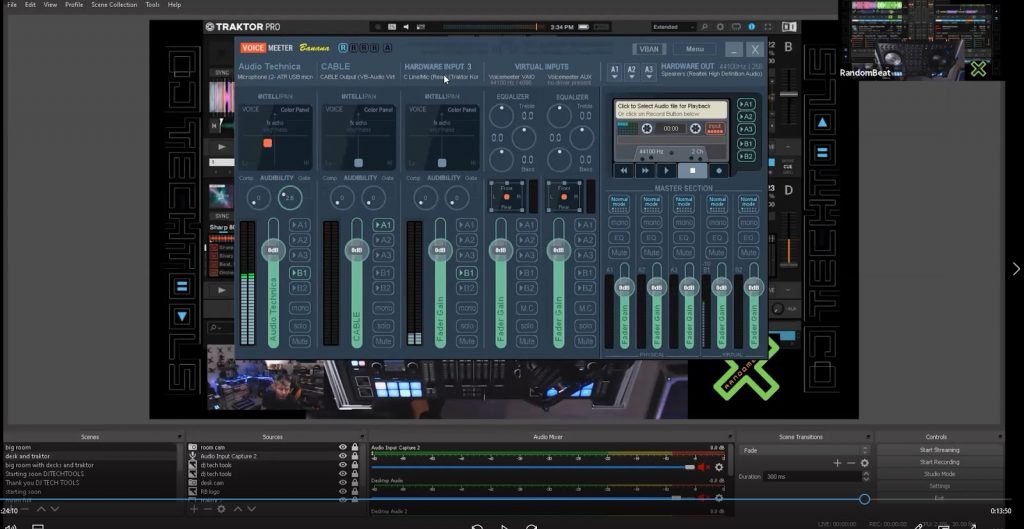
What is the easiest/cheapest way for someone to get started?
My setup may seem complicated, but once you wrap your head around the difference between the physical inputs and outputs, and the virtual inputs and outputs, it’s actually pretty easy to understand.
You have to make a choice when you decide to stream, you can either go directly from a phone or iPad, or directly from a PC/Mac.
I personally recommend going from a computer to get the best quality possible, and allow you to do very interesting visual “scenes” and combinations of audio sources.
Either way you need the following things to get started:
* A device to stream on (PC/MAC or Phone/ipad)
* A source (your decks and a mixer, or your DJ controller)
* A way to get that source into your device (TRSS to TRS adapter for phone / SoundCard or 1/8th inch to RCA at minimum for PC/MAC)
* Streaming Software (Direct to FB/Instagram on phone)(OBS for PC/MAC)
* Camera (phone camera/webcam for PC/MAC)
* Microphone (direct into your controller/mixer or if USB mic see below)
* Virtual Audio Software (Voicemeeter Banana for PC/loopback for MAC)
***only needed if your using computer with multiple audio sources and no sound card
It can be as simple as going into your phone with the TRSS to TRS adapter and using the phone camera, or as complicated as a computer with several web cameras and audio sources, it’s totally up to you.
There is one audio only alternative, a website called livesets.com which you can broadcast directly from some softwares such as Traktor, and it eliminates all the complex audio routing. The only downside is that it is audio only, but it works great. It records every live set as a Session and also lists the tracks you’re playing automatically, while you mix.
What are some mistakes to avoid while live streaming
* Streaming is not like playing in the club. Your viewers need interaction, either from a microphone or via the chat function, just make sure you are paying attention to them and responding as much as you can. Giving shout outs works well as people love to feel like they are a part of the show.
* Check your background and make sure it’s not messy, the last thing you want to stream is a pile of dirty clothes in the background.
* Test your audio levels and Mic levels and make sure they are not clipping or distorted, in advance. You can stream to youtube unlisted and give a friend the link, ask them to tune in and give you feedback on your audio and mic levels, visuals, etc.
* Don’t over complicate it if you’re not used to the software, a simple one camera stream with a clean solid audio and mic level is fine, it doesn’t have to be 15 different camera angles and multiple sound sources to be a good stream.
* Make sure that you post up your links to your stream. I usually go live with a “starting soon” screen, and while I’m waiting for viewers to show up I post links to my stream on facebook, facebook groups, forums, etc.
Have fun with it! It’s all about song selection and energy, keep it grooving and folks will stay tuned in!
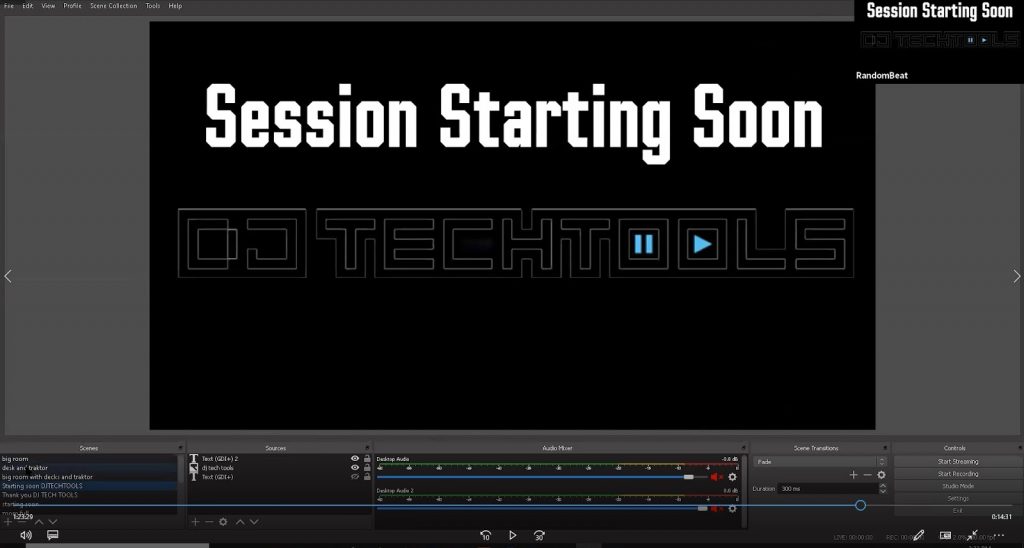
Are there ways to do it on both android and iphone devices?
Yes, as far as I know, as long as your phone has a mic input and camera it will work, you just need the proper adapter (TRSS to TRS) or a sound card that is made to work with a phone, such as an Irig or a Roland Go mixer.
What is the best streaming setup money can buy (within a couple hundred bucks)?
If you already have a computer or laptop that will run your DJ software and OBS at the same time, I would suggest going that route. It will require a little learning, but the payoff is amazing once you have your scenes and sources setup properly.
If you do not have a computer, but still want great quality audio, get an Irig or a Roland Go mixer and run it through your phone. The audio quality will be good and that’s what matters most.
Facebook: https://www.facebook.com/RandomBeatLive/
Youtube: https://www.youtube.com/randomfpvlive
Soundcloud: https://soundcloud.com/randombeatlive
Livesets: https://livesets.com/randombeat
Instagram: https://www.instagram.com/randombeatlive/
Twitter: https://twitter.com/RandomBeatLive
Conclusion
So there’s a few examples of how to do this! Hopefully it will inspire you to get on the decks and spread some musical joy to your friends and fans. For some more information on streaming, you can find great articles covering the technical aspects here, here and here.
And for now, head over to the Heavy Hits pool to find some great tracks for your sets, and follow me on Twitter, Facebook or Instagram – if you have any suggestions or questions, hit me up on the DM!

